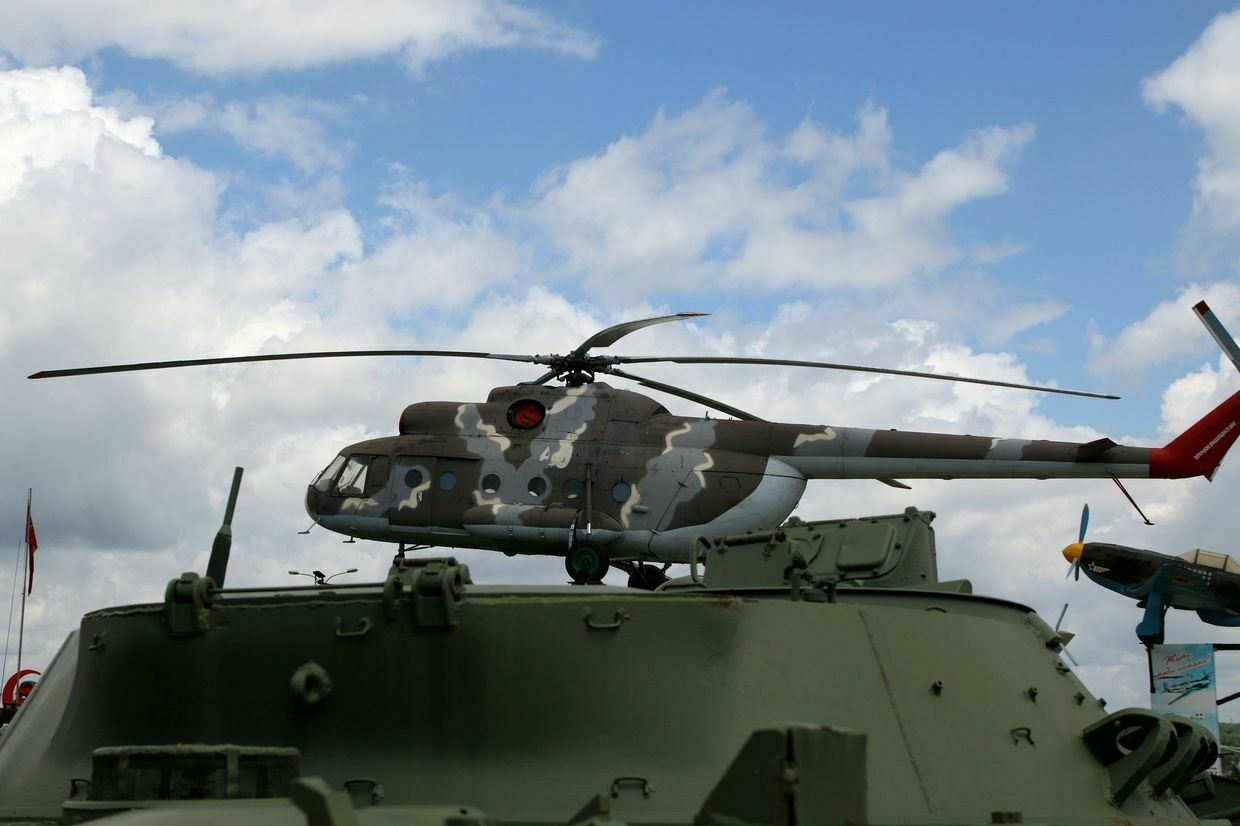-
Intense battles continue as Russian forces struggle to advance in Ukraine's Sumy and Pokrovsk regions
In a recent news broadcast, Viktor Trehubov, a representative of the Ukrainian Khortytsia operational-strategic military grouping, highlighted that intense battles continue across all front lines, with Russian forces attempting to advance in multiple directions.
According to Trehubov, the Russian summer offensive hit a stalemate in the Sumy region, yet fierce battles persist on numerous fronts.
Trehubov remarked that this could pertain to the Sumy area, where Russians, despite extensive preparations, achieved little. However, he clarified that it's not entirely accurate to state that the Russian summer campaign was universally unsuccessful across the Khortytsia zone of responsibility.
In the Pokrovsk direction, relentless fighting continues, with the Russian troops retaining the capability to sustain them. There are over 50 battle engagements each day, and Trehubov believes the intensity of these attacks can't increase further.
"The enemy has crossed the Pokrovsk-Kostiantynivka highway and is attempting to advance northwards. This means they might move towards Kostiantynivka or target the Pokrovsk-Myronivsk agglomeration from the east, or perhaps both," Trehubov predicted.
While he noted that the Russian forces aren't actively nearing the agglomeration, the situation remains perilous.
"They must be pushed back beyond the highway, and all available means must be used to diminish their attacking capabilities," he emphasized.
Trehubov also mentioned Russian efforts to advance south of Pokrovsk towards the administrative border of the Dnipropetrovsk region, though these movements are already south of the city.
Trehubov emphasized the sheer number of 110,000 Russian troops operating in the Pokrovsk direction alone, suggesting that these numbers are unlikely to increase, as Russia has already deployed its resources in this region.
Andriy Demchenko from the State Border Service of Ukraine recently reported that defense forces have managed to stall the Russian advance in the Sumy region. The Russians suffer significant losses and hesitate to use armored vehicles.
Western media have reported that Russia has amassed 50,000 troops in the Sumy area. Russian forces are stationed just 20 kilometers from Sumy, with the Kremlin leveraging its superior numbers across the front.
-
China unveils its new 'graphite bomb' — here's how they work
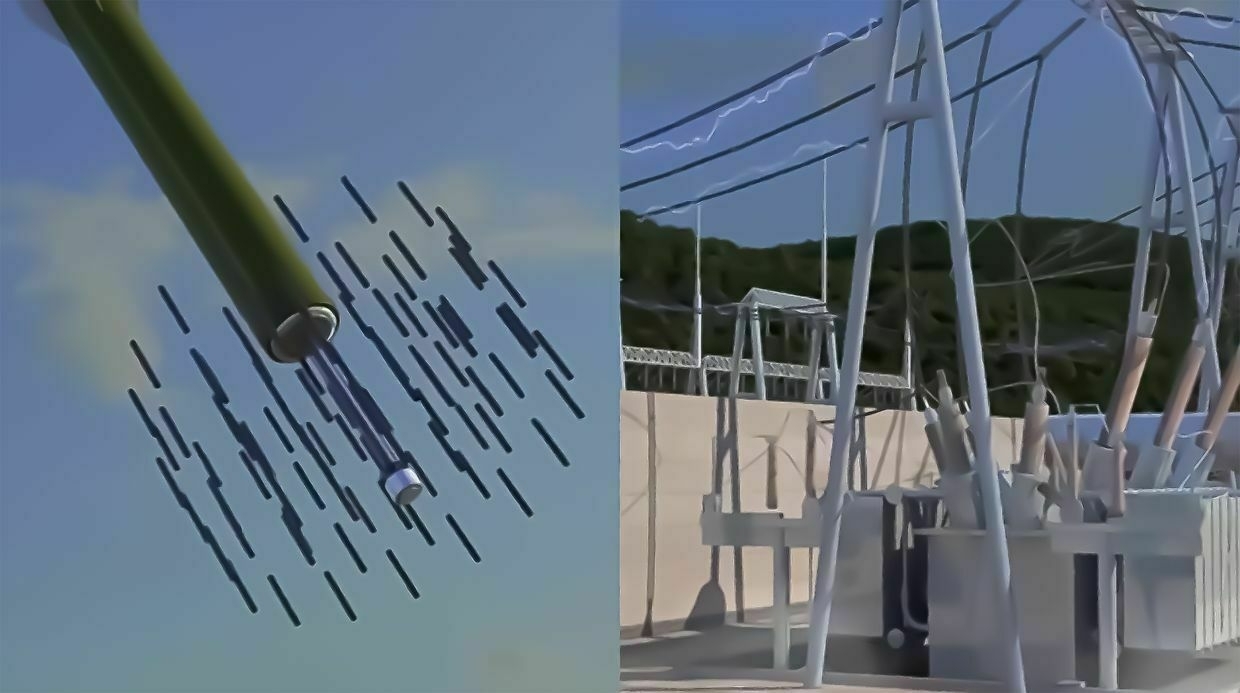
China’s state TV broadcaster has revealed details of a new “graphite bomb” that can cause a “complete loss of electricity” across an area of 10,000 square meters, or knock out entire power stations, the South China Morning Post reported on June 29.
An animated video released by China’s CCTV showed a missile being launched from a ground-based launcher and then flying to a target where it releases 90 small submunitions.
They then bounce on the ground before exploding amid a mock-up of an electrical substation. The video then shows electrical equipment malfunctioning.
The video of the new weapon comes amid heightened global tensions and the rising threat of a Chinese invasion of Taiwan.
China has also been a key ally to Russia during its full-scale war, helping Moscow evade Western sanctions and becoming the leading source of dual-use goods fueling the Russian defense industry.
How does a graphite bomb work?Graphite bombs, also known as “blackout bombs” or “soft bombs,” release a dense cloud of tiny graphite particles over a target area.
As graphite — even particles dispersed in a cloud — is an extremely good conductor of electricity, any power lines or electrical equipment in the target area will be short-circuited.
Such an attack on a civilian or military area will mean that any electrical equipment in that area will cease to function.
But released over a power station, the entire region it supplies will be affected as well.
Though a graphite bomb is classed as non-lethal, the effects of widespread power outages among a civilian population can cause casualties.
Are graphite bombs a new technology?Graphite bombs have been around for decades and are known to have been used by Western nations on two occasions.
In 1999, NATO used them to target five power plants in Serbia during the Kosovo war, leading to instant power cuts across 70% of the country.
The intention was to take out the Yugoslav Army’s radar and communications while minimizing civilian casualties, but the power outages also affected hospitals, public transport, and water and sewage systems.
“The military strategy of attack on civilian infrastructures is a war on public health.”
A subsequent report by the International Physicians for the Prevention of Nuclear War concluded that the "targeting of electrical generating plants, water treatment facilities, Danube bridges, railways and roads has adverse effects on civilian life, endangers health and seriously affects health care."
"The military strategy of attack on civilian infrastructures is a war on public health."
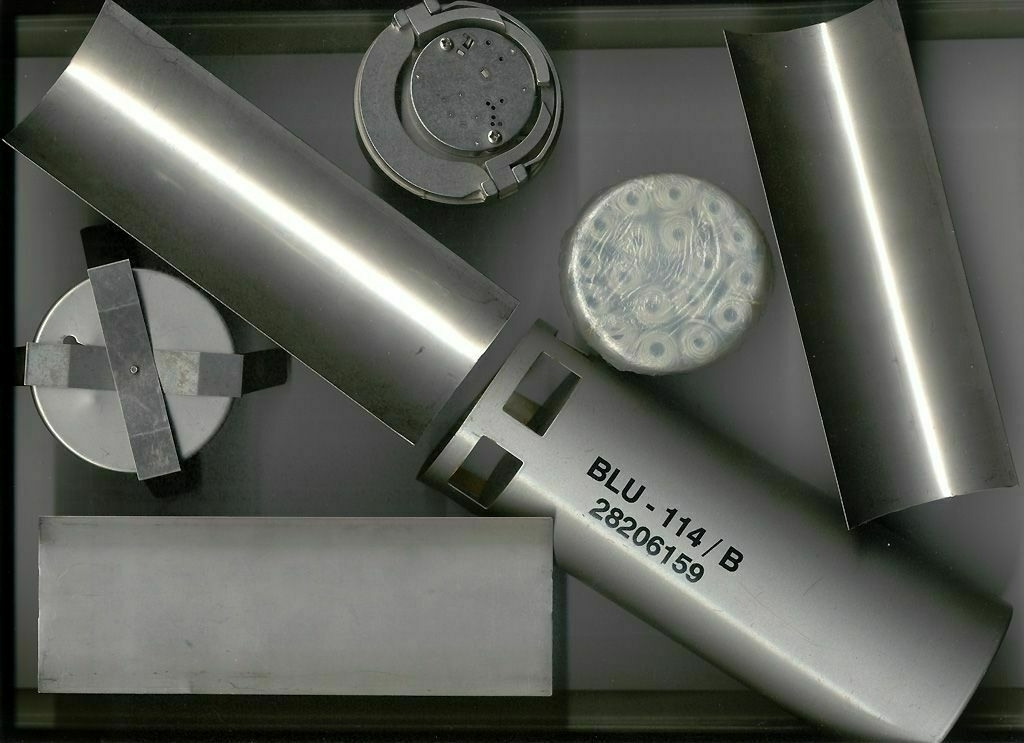
The BLU-114/B “Soft-Bomb,” a graphite bomb. (Marko M / Wikimedia) When asked about the weapon after the attack, Pentagon spokesperson Ken Bacon told the BBC: "We have certain weapons we do not believe it is appropriate to talk about — and this is one of them.
"It is highly classified, and it's not a weapon we choose to discuss publicly."
The U.S. armed forces also used graphite bombs during the 1991 Gulf War in Iraq, using its BLU-114/B graphite bomb to target two power distribution facilities and causing blackouts that lasted 30 days.
Does China's graphite bomb work in the same way as the U.S. version?Though there are few details on the exact workings of China's new graphite bomb, there do appear to be differences in how they can be deployed.
The BLU-114/B uses spools of carbon-fiber wire, which are dispersed over the target area. When these come into contact with a high voltage, they then vaporize into a fine cloud of particles.
According to what can be seen in the video released by CCTV, the Chinese bomb releases submunitions that self-detonate in order to create a cloud of graphite particles.
Which other countries possess graphite bombs?South Korea said in 2017 that it had developed its own graphite bomb and was ready to deploy it against North Korea in the event of a war.
Russia reportedly closes Crimean Bridge amid explosions in KerchWitnesses reported hearing multiple blasts and observing Russian air defense systems in action. The Kyiv IndependentAnna Fratsyvir
The Kyiv IndependentAnna Fratsyvir
-
Russian economy faces mounting challenges amid rising military spending and banking instability
In a stark address at Sberbank's annual shareholders meeting on June 30, German Gref, the head of Russia's largest bank, painted a bleak picture of the Russian economy's future. The country is grappling with a rapid surge in military spending, inflation spikes, and a significant hike in the central bank's key rate, hindering quick economic fixes. The forecast for 2026 doesn't offer much solace either, with expectations of continued challenges.
"The situation heavily hinges on geopolitics, GDP growth dynamics, and the Central Bank's interest rates. But it's already clear that the year will not be easy since the first half of 2026 is at least notably uncertain now," Gref remarked, as quoted by RBC.
Sberbank is witnessing "deteriorating credit portfolio quality" and increasing requests for debt restructuring, affecting both individual and corporate clients, Gref acknowledged. He remains hopeful, however, saying, "Hopefully, as always, we will find common plans to navigate these challenging times."
Behind closed doors, Russian bankers express concern that the nation might face a full-blown banking crisis within the next 12 months due to rising loan defaults, Bloomberg reports, citing bank executives. Insiders estimate the scale of this financial headache to be in the trillions of rubles.
The macroeconomic analysis and forecasting center, CMASF, linked to the government, predicts that companies making up 17% of the economy's revenue are at risk. Sectors under financial stress include the fishing and mining industries, particularly coal, clothing and leather goods manufacturing, automotive production and trade, oil refining, construction, water transport, and postal services.
Inter-business payment delays are on the rise as well. Between October last year and March this year, mutual payment defaults increased by 11.6%, with the manufacturing sector witnessing a nearly 40% jump—a historic high since the COVID-19 shock.
Many firms are nearing default, stated Alexander Shokhin, head of the Russian Union of Industrialists and Entrepreneurs, during the St. Petersburg International Economic Forum (SPIEF 2025).
Since Russia's conflict with Ukraine began, banks have extended 34 trillion rubles in new loans to corporations—equivalent to 17% of the nation’s GDP. As of June 1, total corporate debt to the banking system soared to 86.2 trillion rubles, marking a 65% increase since the start of 2022. Nearly half of this debt is attributed to 78 of Russia’s largest companies. Of these, one in six companies now has to allocate at least a third of their pre-tax income just to cover interest payments, and 8% of the debt belongs to firms that can't even generate enough to pay interest.
"Individual bankruptcies are possible," warned the Central Bank at the end of May. According to the ACRA rating agency, bank loans amounting to 3.7 trillion rubles—equivalent to 20% of the banking system's capital—could turn problematic.
-
The Kyiv Independent launches 'How to help Ukraine' newsletter
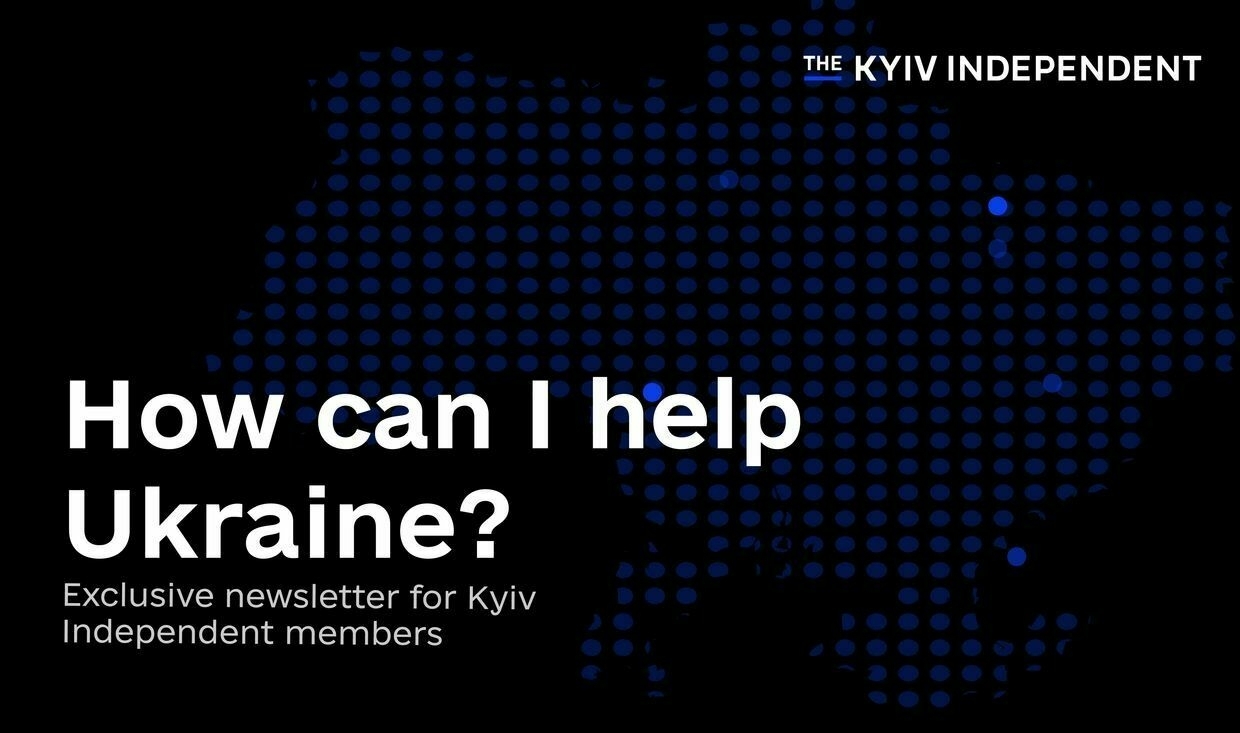
The Kyiv Independent has launched a new membership benefit in direct response to the most frequently asked question from its members — “What more can I do to help Ukraine?"
The “How to help Ukraine” newsletter will help members exercise their agency, get more involved in efforts to support the country, with donation suggestions and even volunteering opportunities, all while raising awareness of Ukrainian civil society.
“We always knew that our community was passionate about supporting us, but that wasn’t the only thing driving them,” Daryna Shevchenko, CEO of the Kyiv Independent said.
“Many of our members have repeatedly expressed a sincere desire to help Ukraine in ways that go beyond donating to the Kyiv Independent. Now, we’ve finally found the resources to act on that."
The first edition sent on June 12 raised $16,500 in just four days for the Leleka Foundation, a U.S.-Ukrainian charity that procures medical supplies for those on the front lines.
The Kyiv Independent conducted over a dozen in-depth interviews with supporters to find out exactly what they wanted, and the "How to help Ukraine" newsletter is the result — and it's already allowed members to give help where it's most needed.

Screengrab from the Leleka Foundation website. (Leleka Foundation) The first edition sent on June 12 raised $16,500 in just four days for the Leleka Foundation, a U.S.-Ukrainian charity that procures medical supplies for those on the front lines.
This money helped purchase medical backpacks for front-line medics containing tourniquets, bandages, hemostatic dressings, chest seals, soft splints, trauma shears, and burn treatment — each backpack has enough equipment to save 10 lives.
Ongoing support for organizations like Leleka Foundation is vital for Ukraine — it was founded in December 2014, when several Ukrainians in the U.S. joined forces with volunteer initiatives in Ukraine to procure and supply medical and first-aid equipment for paramedics, ambulances, and hospitals.
Leleka is currently a team of 20 staff members and volunteers across two continents and donations like those raised as a result of the "How to help Ukraine" newsletter will allow them to continue their work during uncertain times.
The "How to help Ukraine" newsletter will highlight one such organization each month, giving members the opportunity to donate money, time, or support to a group they can be assured shares the same values and mission as the Kyiv Independent.
"The desire to help Ukraine — more deeply and in more ways — is a passion we at the Kyiv Independent wholeheartedly share with our community," Shevchenko said.
For more information, please contact: news@kyivindependent.com
5 ways you can support Ukraine — even if your government doesn’t want toEditor’s note: This is an edited version of a guide for our members published on Feb. 24, 2025. If you would like to join a community of people united by wanting to help Ukraine, consider becoming a member today. U.S. President Donald Trump’s public spat with President VolodymyrThe Kyiv IndependentBrooke Manning
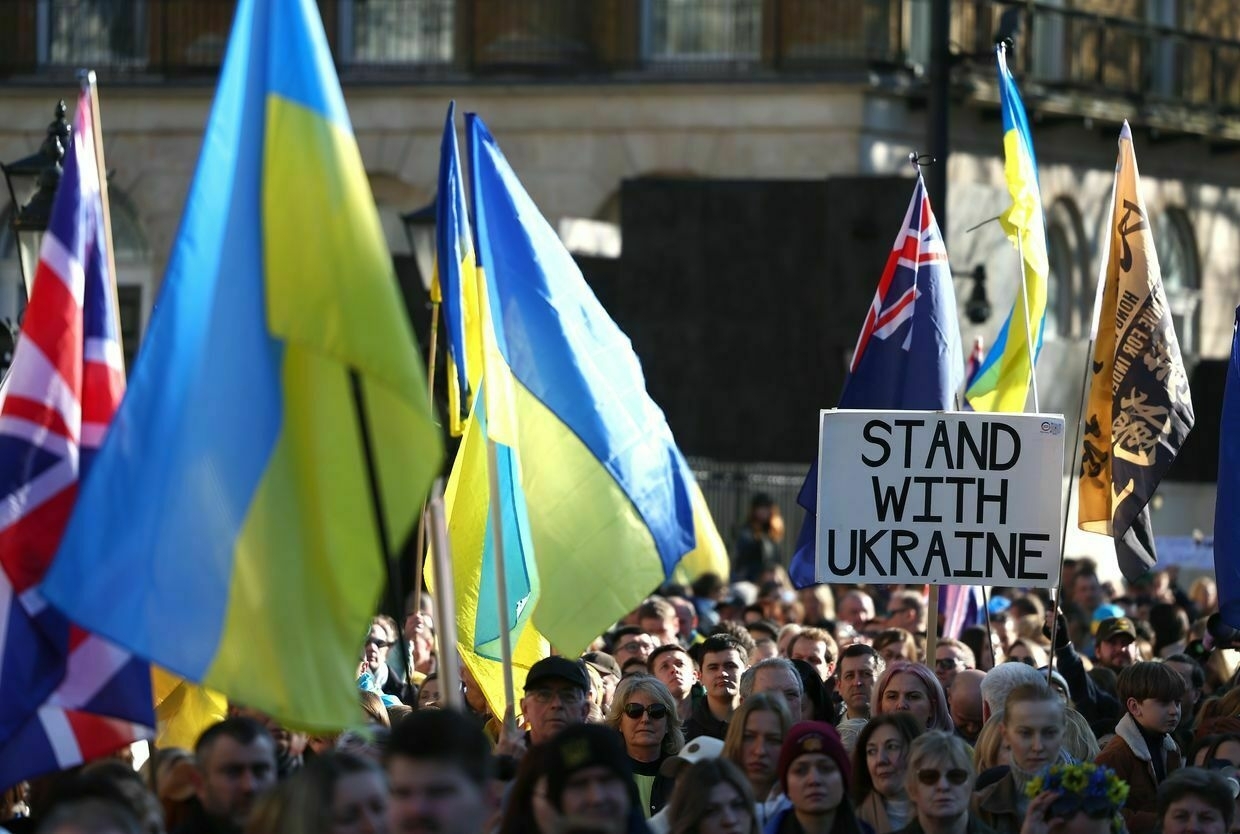
-
Amid Russian economy warnings, Lavrov says NATO's increased defense spending will lead to 'collapse' of alliance
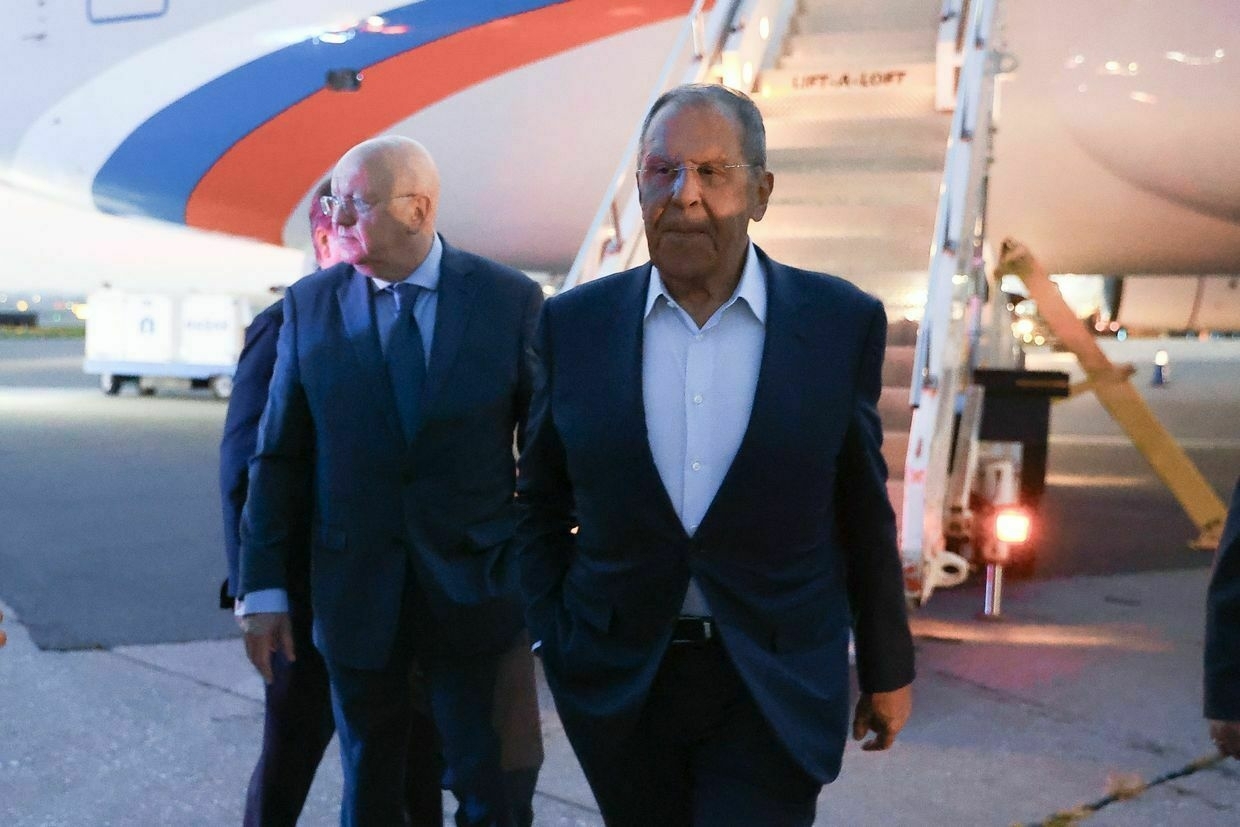
NATO’s increased defense spending will lead to the “collapse” of the alliance, Russian Foreign Minister Sergei Lavrov said on June 30, despite Russian officials recently warning that Moscow’s own military expenditure is driving the country towards recession.
Lavrov’s comments come after NATO leaders last week approved a new defense spending benchmark, committing members to spend at least 5% of GDP on defense and security-related expenditures by 2035, a goal long pushed by the U.S. and endorsed by NATO Secretary General Mark Rutte.
The week previously, and in a rare public sign that all is not well in Russia, two high-ranking Moscow officials issued separate warnings about the state of the country’s economy.
Russian Central Bank Governor Elvira Nabiullina and Economy Minister Maxim Reshetnikov both highlighted that amid the Kremlin’s full-scale war against Ukraine, the tools Moscow once relied on to maintain wartime growth are nearly exhausted.
Polish Foreign Minister Radoslaw Sikorski on June 26 said an arms race between Russia and NATO could lead to Russian President Vladimir Putin’s downfall.
“Since (Polish Foreign Minister Radoslaw Sikorski) is such a predictor, he probably foresees that a catastrophic increase in the budget of NATO countries, according to my estimates, will also lead to the collapse of this organization,” Lavrov reportedly said.
Putin last week announced that Moscow plans to cut its military expenditure beginning next year, in a rebuke of NATO members' plans to increase defense spending to 5% of GDP.
“We are planning to reduce defence spending. For us, next year and the year after, over the next three-year period, we are planning for this,” Putin said, though he did not provide concrete details.
“Europe is thinking about how to increase its spending, on the contrary. So, who is preparing for some kind of aggressive actions? Us or them?"
Western officials and analysts point to Russia’s surging military expenditures amid its ongoing full-scale invasion of Ukraine. In 2024, Russia’s defense budget reportedly rose 42% in real terms, reaching $462 billion, surpassing the combined spending of all European nations, according to the International Institute for Strategic Studies.
NATO allies have cited Russia’s military buildup, sabotage campaigns, and continued aggression against Ukraine as reasons to accelerate defense investments. Rutte warned that Russia could rebuild its military capacity to threaten NATO territory within five years, urging members to act with urgency.
As Ukraine bleeds, Western opera welcomes back pro-Putin Russian singer Anna NetrebkoMore than three years into Russia’s full-scale war against Ukraine, many Western cultural institutions that had distanced themselves from Russian artists as a gesture of solidarity with Ukraine are now reversing course. The U.K.’s Royal Ballet and Opera House announced on June 23 that its 2025-2026 cinemaThe Kyiv IndependentKate Tsurkan
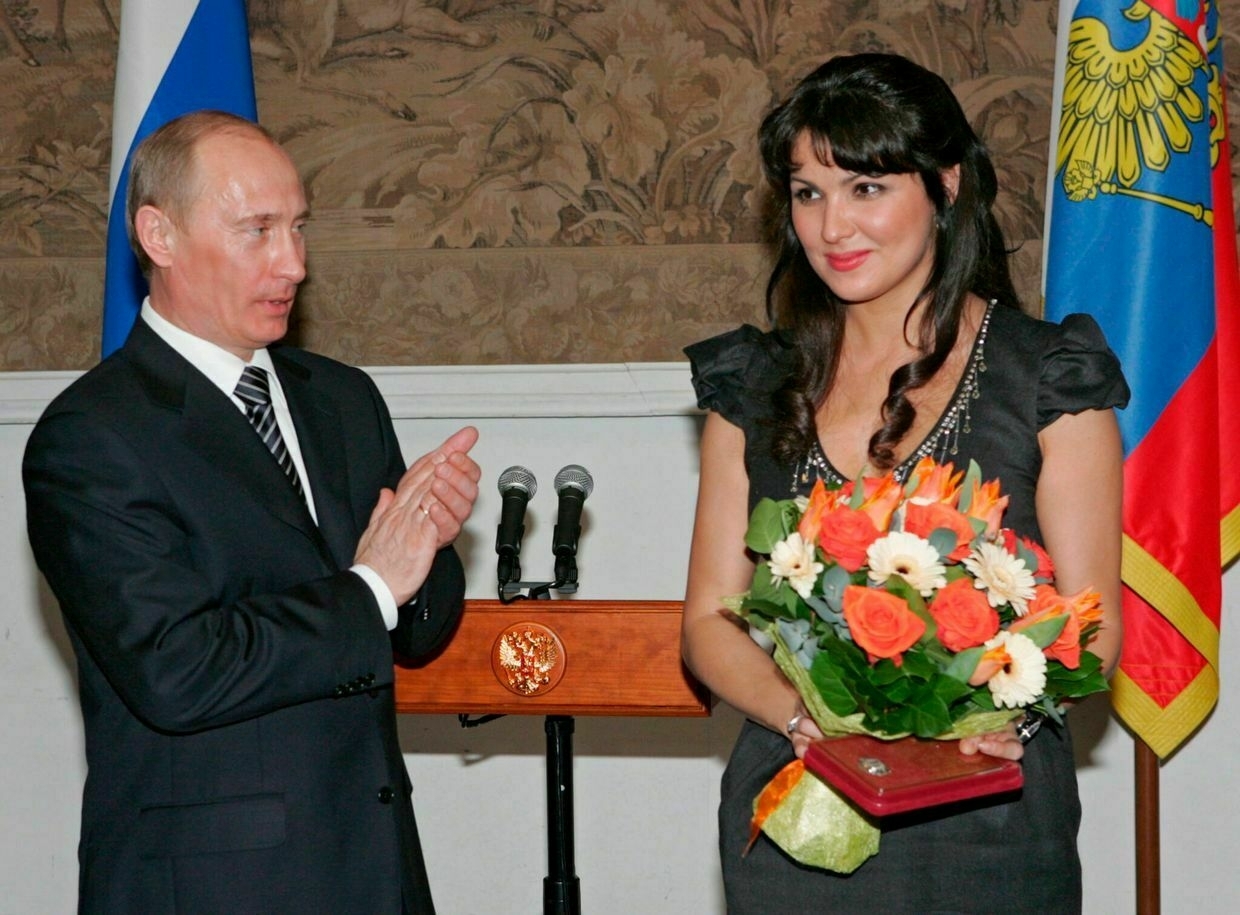
-
Germany vows to pursue 'every path' to boost Ukraine's air defenses, FM Wadephul says in Kyiv
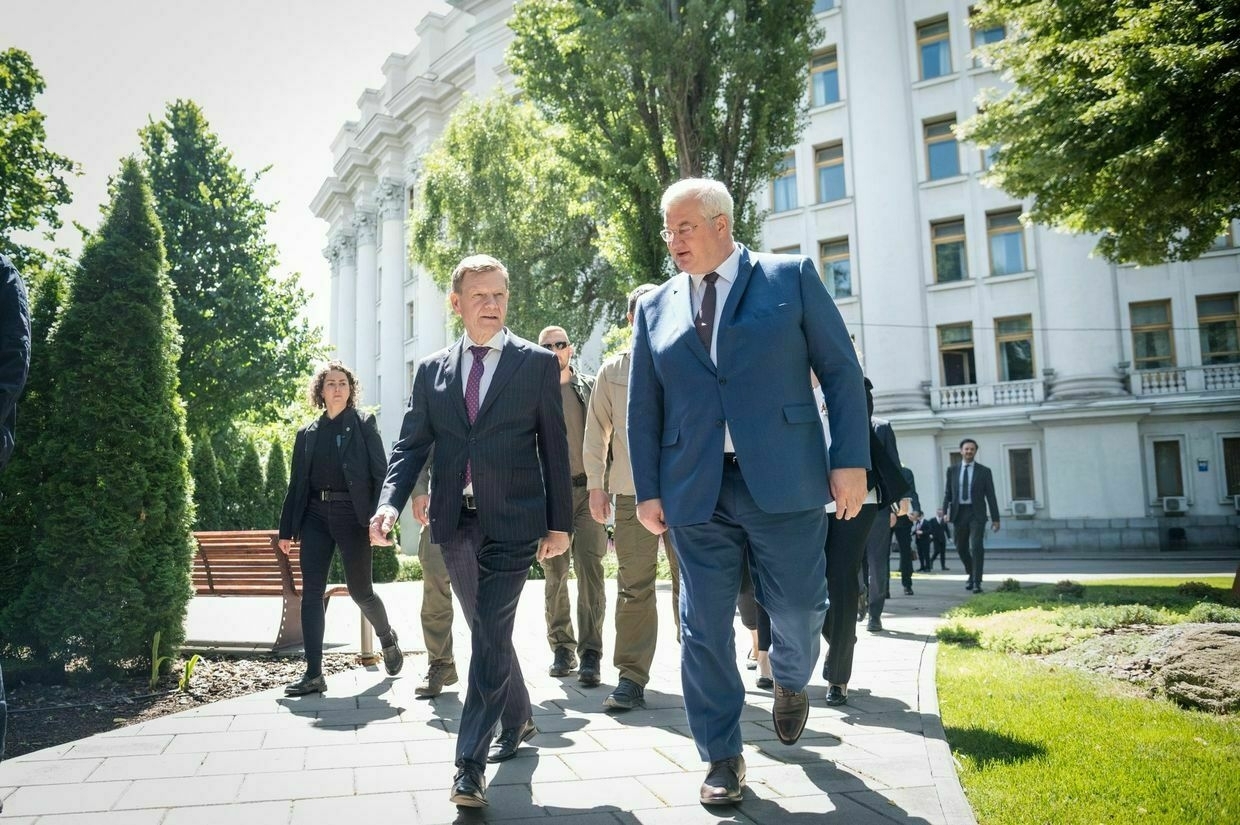
German Foreign Minister Johann Wadephul pledged on June 30 that Berlin is exploring “every possible path” to provide Ukraine with additional air defense systems, amid intensifying Russian missile and drone attacks, according to RBK-Ukraine.
Speaking at a press conference during his visit to Kyiv, Wadephul said Germany is working with its defense industry, European allies, and the U.S. to urgently secure more systems for Ukraine’s air shield.
“We are going down every path available,” Wadephul said. “The German defense industry is trying to expand its capacity. We’re speaking with our European partners, and I believe we must also move forward with the United States."
He added that he remains in close contact with German Defense Minister Boris Pistorius to assess whether existing systems from Germany’s own stockpiles can be redirected to Ukraine.
Wadephul’s visit came just a day after Russia launched its largest aerial assault on Ukraine to date, firing 477 drones and 60 missiles in a 24-hour period. In a video message posted on social media earlier on June 30, the German minister described Ukraine as “a country once again haunted by war,” and reaffirmed Germany’s solidarity.
“Germany stands by Ukraine,” Wadephul said. “We must not allow freedom to be lost here. We have to support this country and ensure that a ceasefire is finally achieved. (Russian President Vladimir) Putin must realize he cannot continue this war and must negotiate a peace solution."
Guten Morgen aus der Ukraine 🇺🇦 pic.twitter.com/mbvfuE0niz
— Johann Wadephul (@AussenMinDE) June 30, 2025Ukrainian Foreign Minister Andrii Sybiha welcomed Wadephul's visit in a post on X, saying the two discussed how to counter Russian aggression and deepen bilateral ties.
Glad to welcome my German colleague and friend @AussenMinDe Johann Wadephul.
— Andrii Sybiha 🇺🇦 (@andrii_sybiha) June 30, 2025
We spoke about steps to counter Russian aggression against Ukraine, neutralise the threats posed to Europe by the aggressive Russian regime, and ways to further strengthen the ties between our nations.… pic.twitter.com/38ZX97SfXbSybiha said they also spoke about Germany's role in Ukraine's development of long-range capabilities and drones, calling it "win-win cooperation"— as well as Berlin's support for the 18th EU sanctions package and Ukraine's path to EU membership.
"I am grateful to Minister Wadephul for his moral clarity and personal contribution to Ukraine's resilience," Sybiha added.
Wadephul is expected to meet with President Volodymyr Zelensky later during his visit.
The German foreign minister emphasized that witnessing the destruction firsthand is critical to understanding Ukraine's suffering and the urgency of sustained international support.
"This is indeed a difficult situation," Wadephul said. "And that is why German solidarity is so important right now."
Warfare in Ukraine has changed… againThe Kyiv Independent’s Francis Farrell explains a new modification of the standard first-person view (FPV) drone that already once transformed the way war is fought. Fiber optic cable now used to connect drone operators to FPVs ensures a perfect image and control experience all the way to the target — and cannot be spotted by enemy drone detectors.The Kyiv IndependentFrancis Farrell

-
Hungarian FM says US lifted Russian sanctions that hindered expansion of Paks Nuclear Power Plant
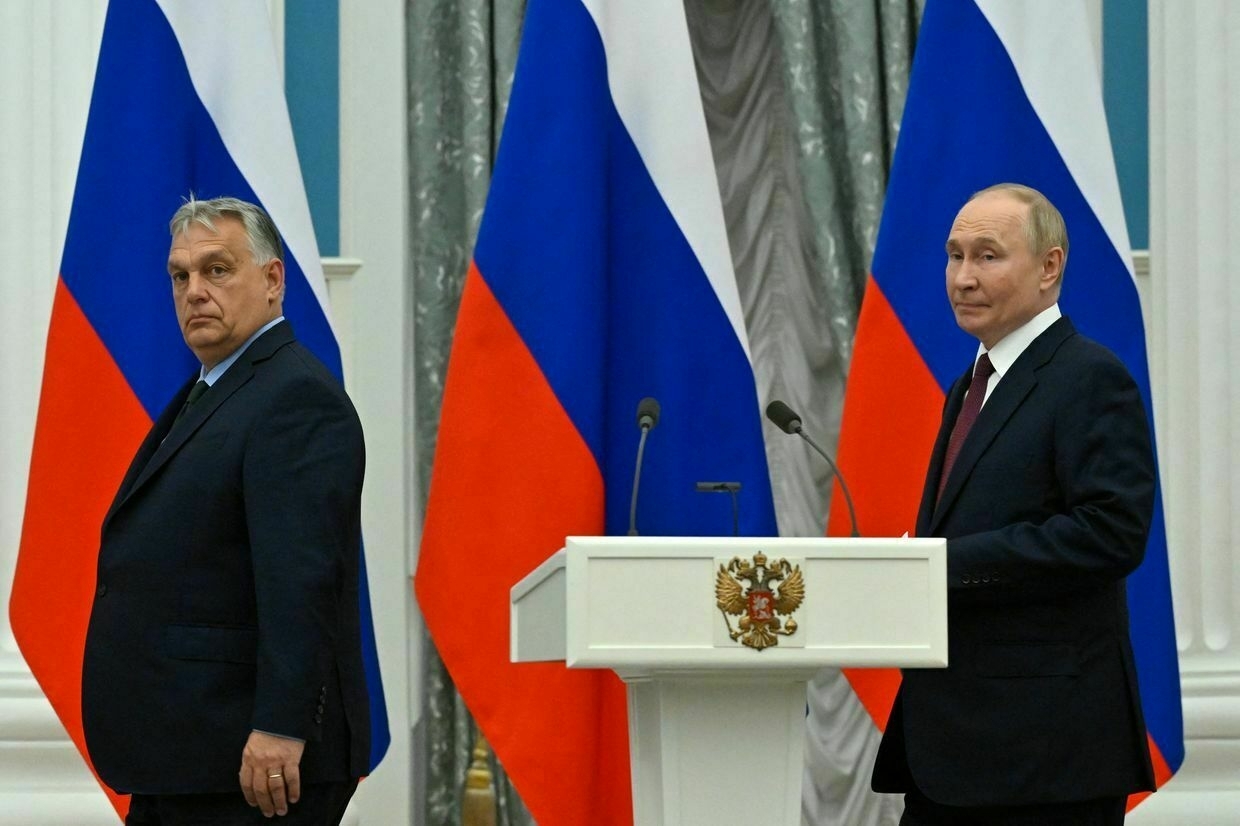
Hungarian Foreign Minister Peter Szijjarto said on June 29 that Washington has lifted sanctions that hindered the expansion of the Paks Nuclear Power Plant, where Russia’s state-owned energy company Rosatom is to build two new reactors.
“Construction of the major pieces of equipment for the Paks nuclear plant is proceeding in Russia and France,” Szijjarto said, as cited by Bloomberg.
“On-site in Paks, construction can now proceed at a faster pace."
The expansion project, which has endured significant delays, is led by Rosatom and will add to the four active reactors.
The anti-Russian sanctions were imposed by former U.S. President Joe Biden’s administration. The U.S. has not reacted to Szijjarto’s comments so far.
Since returning to the Oval Office in 2025, U.S. President Donald Trump has tried to push Russia and Ukraine into peace talks to end the war at all costs and has not yet imposed additional sanctions on Russia for its ongoing war against Ukraine.
Meanwhile, Russia has found loopholes to circumvent sanctions, such as using its shadow fleet or relying on other financial mechanisms.
Hungary’s Energy Minister Csaba Lantos said in 2023 that he expects the Paks II to be finished in 2032.
Vladyslav Vlasiuk, the Ukrainian president’s commissioner for sanctions, said the situation with the expansion of the nuclear plant is “much more complicated.” He accused the Hungarian foreign minister of “manipulation."
Vlasiuk explained in a Facebook post that Paks faces a sanctions exemption from the EU. The U.S. has not lifted the sanctions, though there is a new licence that offers the possibility of conducting transactions related to civilian nuclear energy that began prior to November 2024.
EU fails to adopt new Russia sanctions due to Hungarian, Slovak opposition, source saysUnlike Ukraine-skeptic Hungarian Prime Minister Viktor Orban, Slovakia has not previously attempted to block EU sanctions. The Kyiv IndependentKateryna Hodunova
The Kyiv IndependentKateryna Hodunova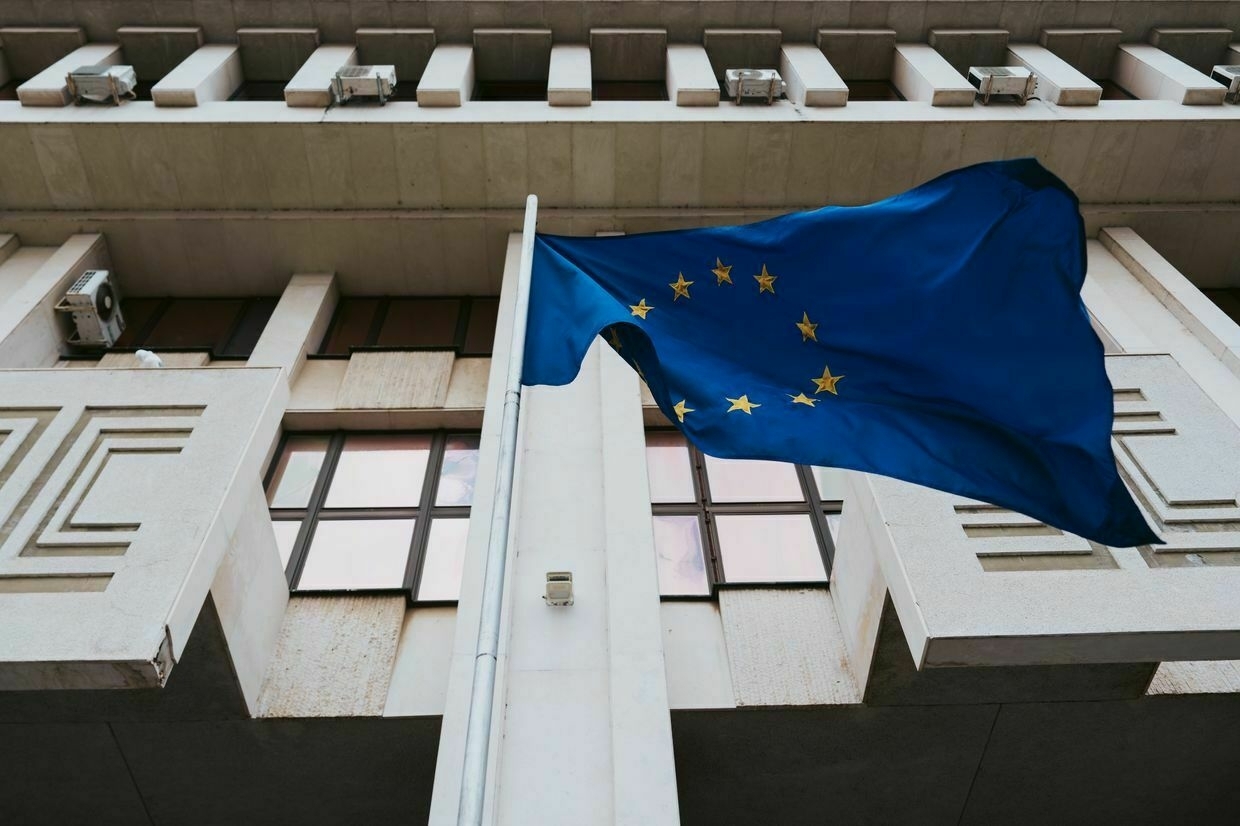
-
Trump meets Zelensky at NATO summit | Ukraine This Week
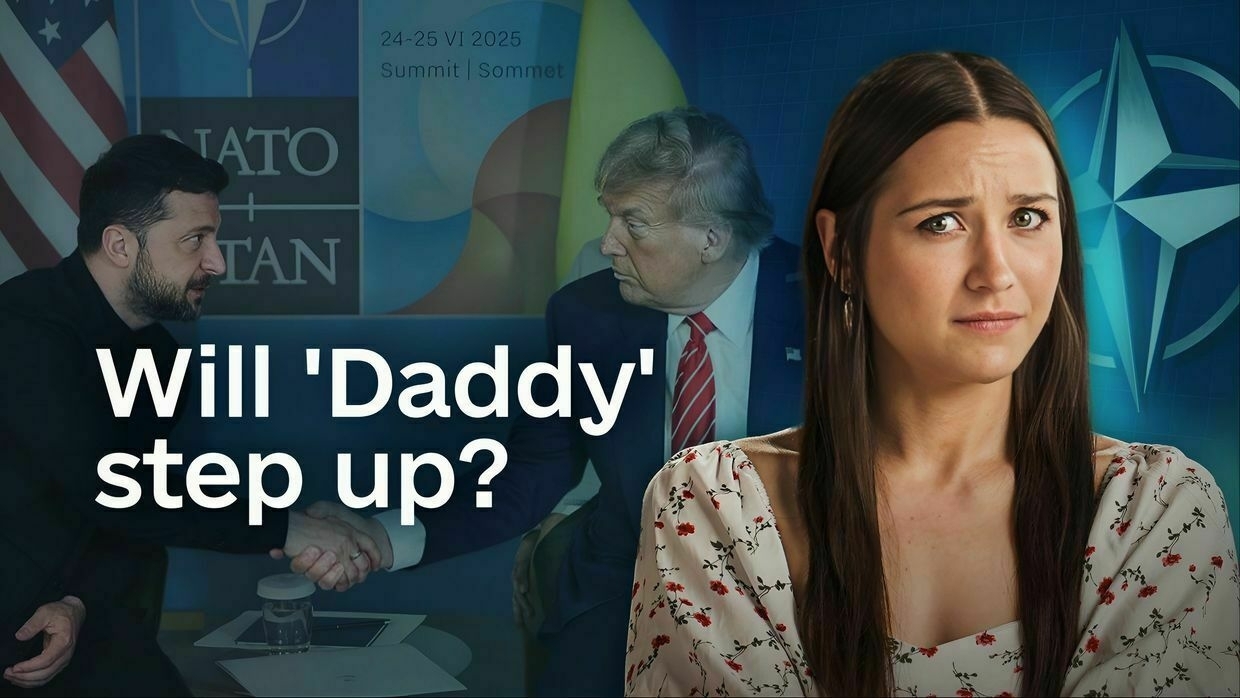
In the latest episode of Ukraine This Week, the Kyiv Independent’s Anna Belokur explains key takeaways from this week’s NATO summit, where Ukrainian President Volodymyr Zelensky and U.S. President Donald Trump held their third in-person meeting since Trump’s return to office. Also, Ukraine’s anti-corruption bureau charges the highest-ranking serving official in a land grab case involving public land, illegal apartments, and hundreds of thousands of dollars.
-
Zelensky signs decree to withdraw from Ottawa Convention banning anti-personnel mines, lawmaker says
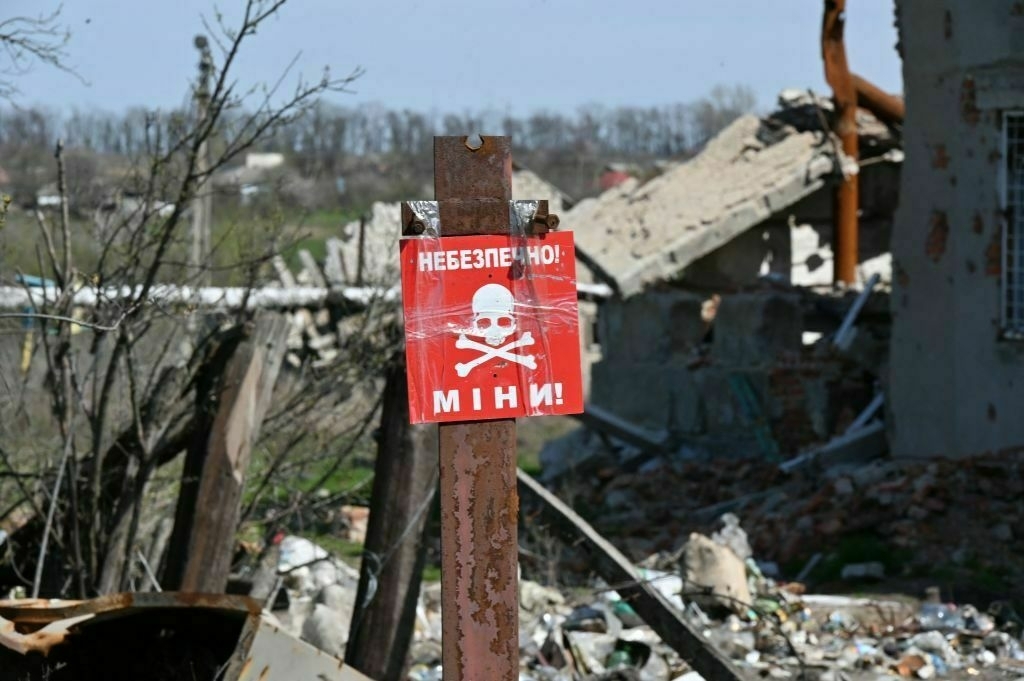
President Volodymyr Zelensky signed a decree to withdraw from the Ottawa Convention banning anti-personnel mines, a step that follows the Baltic nations and Poland’s move to boost their defense as the war rages on in Ukraine.
The 1997 treaty, joined by over 160 countries, bans the use, production, stockpiling, and transfer of anti-personnel landmines in efforts to protect civilians from the scattered explosives that could still injure them long after the conflict is over.
“Russia is not a party to this Convention and is massively using mines against our military and civilians,” lawmaker Roman Kostenko, secretary of the parliament’s defense committee, said in a post on Facebook.
Earlier in March, the Baltic states and Poland announced their intention to withdraw from the Ottawa Convention, a significant shift in defense policy that shows how countries near Ukraine are preparing for a potential war in Europe.
Anti-personnel mines are scattered across the battlefield in Ukraine, with soldiers and civilians often losing their feet or limbs due to detonations. Territories liberated by Ukraine since 2022 have been heavily covered with mines, making it extremely difficult and dangerous to clear them. Russia has used more than a dozen variants of anti-personnel mines since it launched a full-scale invasion of Ukraine in 2022, according to Human Rights Watch’s June report.
In a surprise move that angered Moscow, the Biden administration in 2024 approved the provision of anti-personnel mines to Ukraine. Then Defense Secretary Lloyd Austin said it was to help Ukraine stall the Russian advances in the east as the front-line situation deteriorated.
“This is a step that the reality of war has long demanded,” Kostenko said in the Facebook post announcing a significant move forward in withdrawing from the major mine treaty.
Now that Zelensky signed the decree, which has not been officially published yet, enacting the decision of the National Security and Defense Council of Ukraine, it will land on the parliament’s table, Kostenko said. The dates when the decision will take effect are still unclear.
Russia revives obsolete T-62 tanks amid equipment shortages, Ukraine’s intel claims“The key factors limiting the ability to produce modern armored vehicles in Russia are a lack of industrial capacity and a shortage of imported high-tech components,” Ukraine’s military intelligence said. The Kyiv IndependentKateryna Denisova
The Kyiv IndependentKateryna Denisova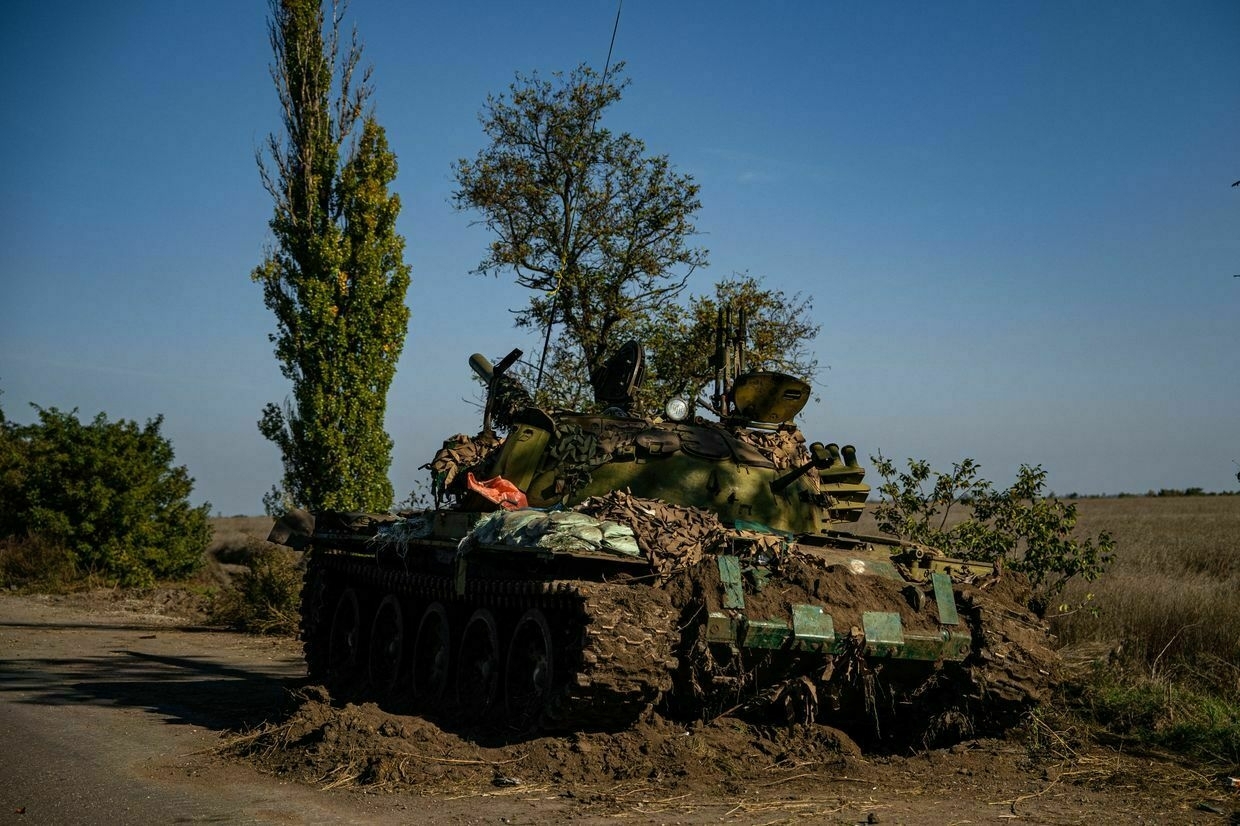
-
F-16 pilot killed during Russia's overnight massive air attack, Air Force says
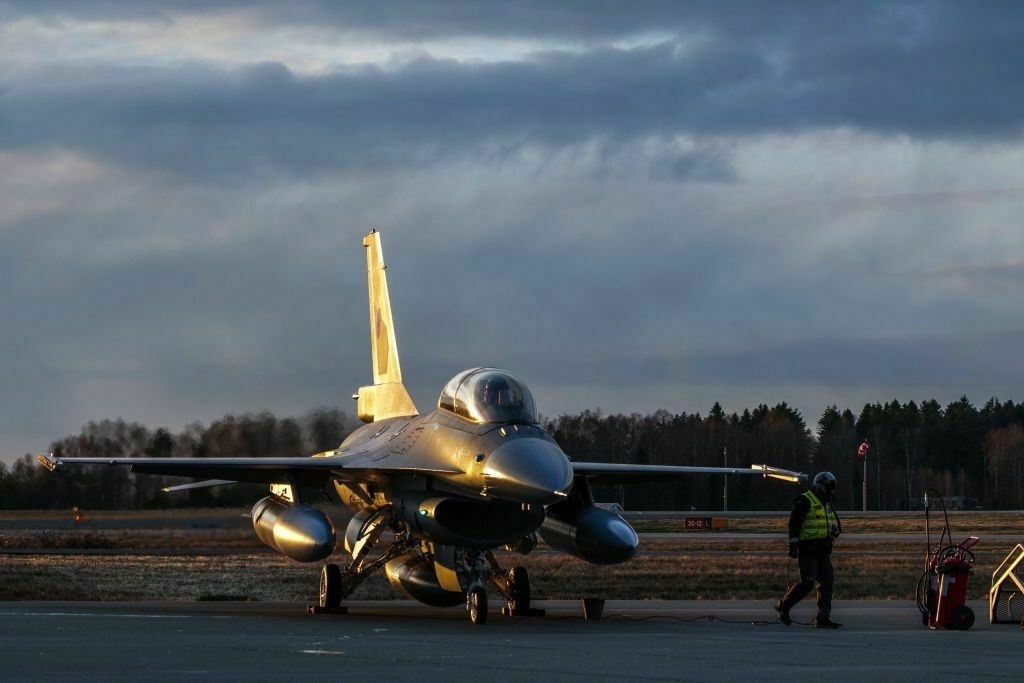
A lieutenant colonel flying a U.S.-made F-16 fighter jet was killed during the overnight aerial strike while on duty, the Air Force said on June 29.
Russia launched a “massive” missile and drone strike across Ukraine early on June 29, unleashing over 500 aerial targets, including various types of missiles and attack drones, according to the Air Force’s statement.
Maksym Ustymenko, born in 1993, was killed after shooting down seven aerial targets, the Air Force said in a statement. The Air Force added that his aircraft was damaged while he was trying to shoot down the last one, losing altitude and crashing.
“Maksym Ustymenko did his best to take the plane away from the settlement, but did not have time to eject,” the Air Force said on Telegram, honoring that he died “like a hero.”
“The work of Ukrainian pilots is extremely dangerous and risky, both when striking enemy ground targets and repelling air attacks,” the Air Force added, saying that the F-16 pilots destroy dozens of Shahed-type drones.
Russia has intensified its aerial campaign on Kyiv and other cities over the past month. President Volodymyr Zelensky said that Russia has launched over 2,700, or roughly 9.5%, of the total number of Shahed-type drones deployed during the entire full-scale war in June alone.
Though well protected with Western air defense systems compared to other cities, Kyiv has also faced a number of deadly attacks in June, with the June 17 missile and drone strike on Kyiv killing 30.
The Air Force said that Ukraine had to use “all available means” to repel the Russian aerial attack overnight on June 29, including elite F-16 jets.
Ukraine received its first batch of F-16 jets in the summer of 2024, but it has not revealed many details about how and where they are used in operations since they are a high-priority target for Moscow. Their pilots have received months of training abroad.
Ukraine war latest: US signals more Patriot missiles for Kyiv after Zelensky-Trump talks at NATO summitKey developments on June 25: * Zelensky, Trump hold talks on NATO summit sidelines * ‘Something unknown’ hits key Russian drone facility in Taganrog, Ukrainian official says * Russia has launched over 28,000 Shahed drones at Ukraine since 2022, with nearly 10% fired in June alone, Zelensky says * Donetsk Oblast city “onThe Kyiv IndependentThe Kyiv Independent news desk
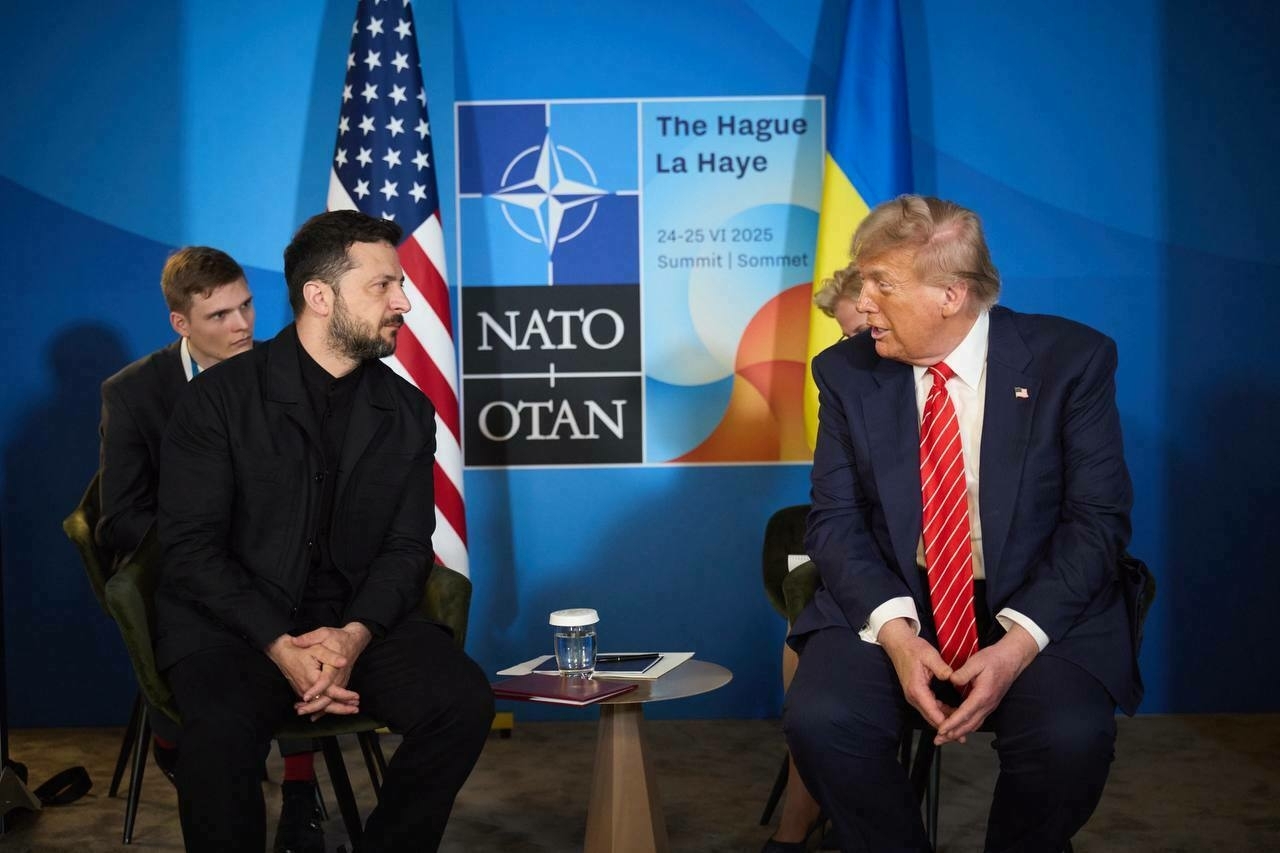
-
General Staff: Russia has lost 1,018,940 troops in Ukraine since Feb. 24, 2022
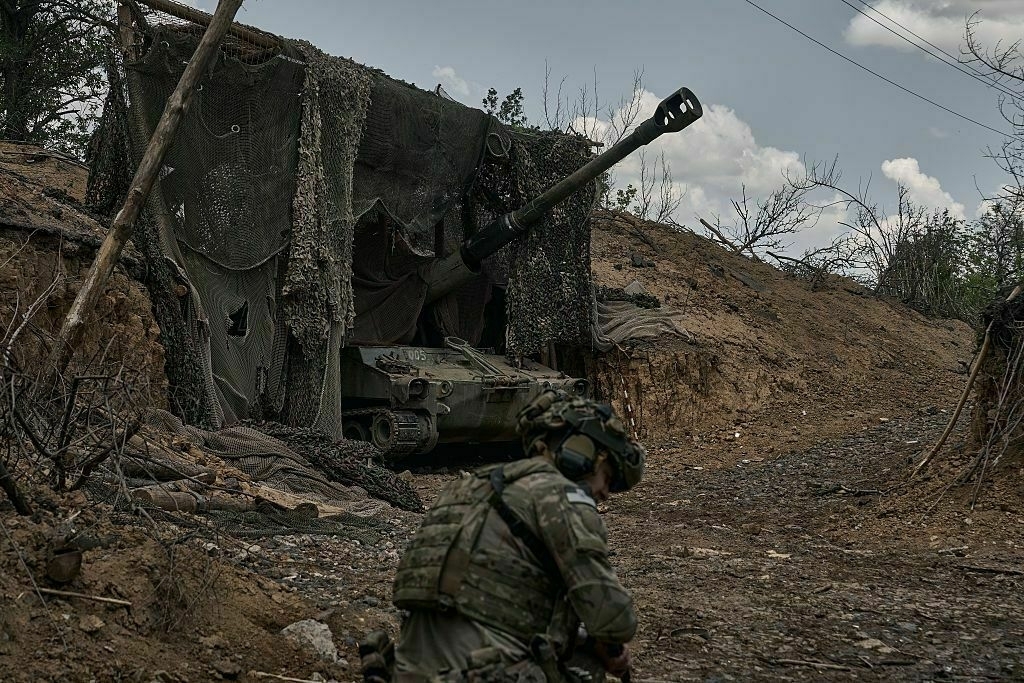
Russia has lost around 1,018,940 troops in Ukraine since the beginning of its full-scale invasion on Feb. 24, 2022, the General Staff of Ukraine’s Armed Forces reported on June 29.
The number includes 1,220 casualties that Russian forces suffered just over the past day.
According to the report, Russia has also lost 10,976 tanks, 22,915 armored fighting vehicles, 53,508 vehicles and fuel tanks, 29,689 artillery systems, 1,425 multiple launch rocket systems, 1,189 air defense systems, 420 airplanes, 337 helicopters, 42,624 drones, 28 ships and boats, and one submarine.
Ukrainian drone strike on Crimea air base destroys 3 Russian helicopters, SBU claimsThe attack destroyed Mi-8, Mi-26 and Mi-28 attack helicopters, and a Pantsyr-S1 self-propelled anti-aircraft missile and gun system, the Security Service of Ukraine told the Kyiv Independent. The Kyiv IndependentKateryna Denisova
The Kyiv IndependentKateryna Denisova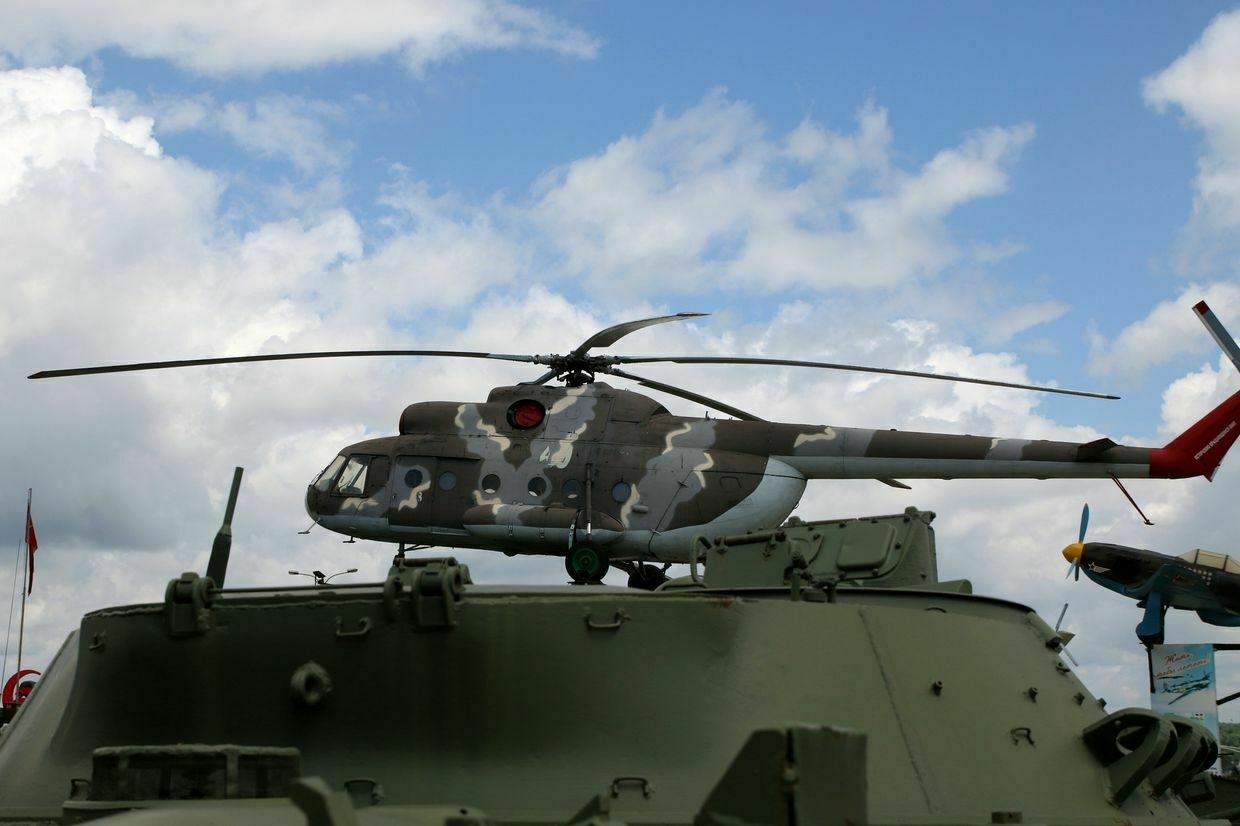
-
MASSIVE shelling of Ukraine: CONSEQUENCES in Cherkasy and Poltava regions #shorts
-
Ukraine approves new 'Murakha' ground robot for combat use

The Defense Ministry has approved the Ukrainian-made ground-based robotics complex “Murakha” (“Ant”) for combat operations, the ministry announced on June 28.
Since 2024, Ukraine has been scaling up robotics development in hopes that mass production of unmanned ground vehicles (UGVs) will “minimize human involvement on the battlefield.”
The Murakha is a tracked robotic platform designed to support front-line units working under challenging conditions, such as under enemy artillery and in heavily mined terrain, the Defense Ministry said.
Its larger size makes it one of Ukraine’s leading UGVs in terms of load capacity. The Murakha can reportedly carry over half a ton of weight across dozens of kilometers. It can also cross difficult terrain and shallow water.
According to the Defense Ministry, the Murakha’s multiple control channels allow it to function successfully even in areas of the battlefield where Russian electronic warfare (EW) systems are operating.
Mobile robots are capable of performing several tasks on the battlefield, including offensive and defensive activities, evacuation of the wounded, logistical support for units, and mining and demining.
In April, the Defense Ministry unveiled the D-21-12R UGV, a ground-based robot equipped with a machine gun.
Ukrainian drones strike missile, drone arsenal in Russia’s Bryansk OblastUkraine’s military intelligence (HUR) struck on June 28 the 1060th Material-Technical Support Center in the city of Bryansk, Ukraine’s General Staff said. The facilities store a Russian missile and drone arsenal, Ukrainska Pravda reported, citing a source in HUR.The Kyiv IndependentDmytro Basmat
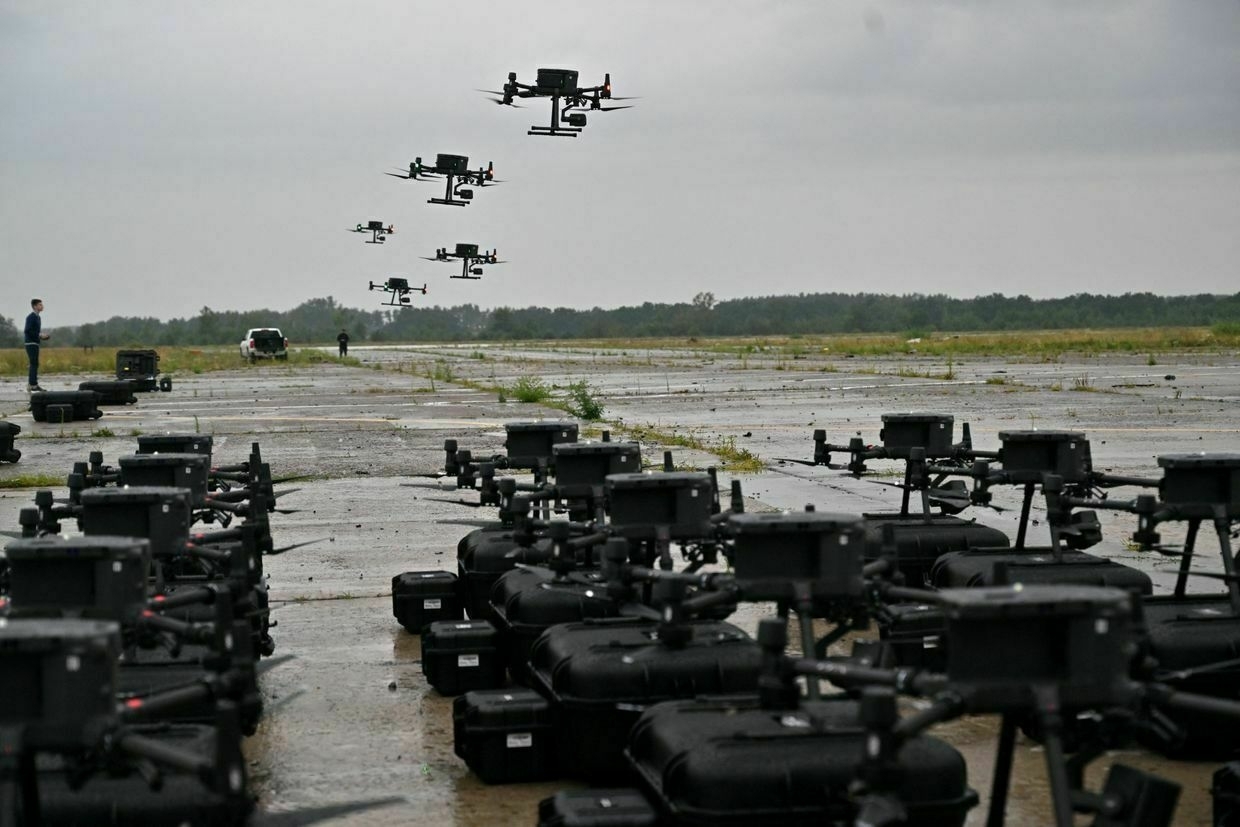
-
Russia reviving efforts to expand LNG exports after US sanctions, Bloomberg reports
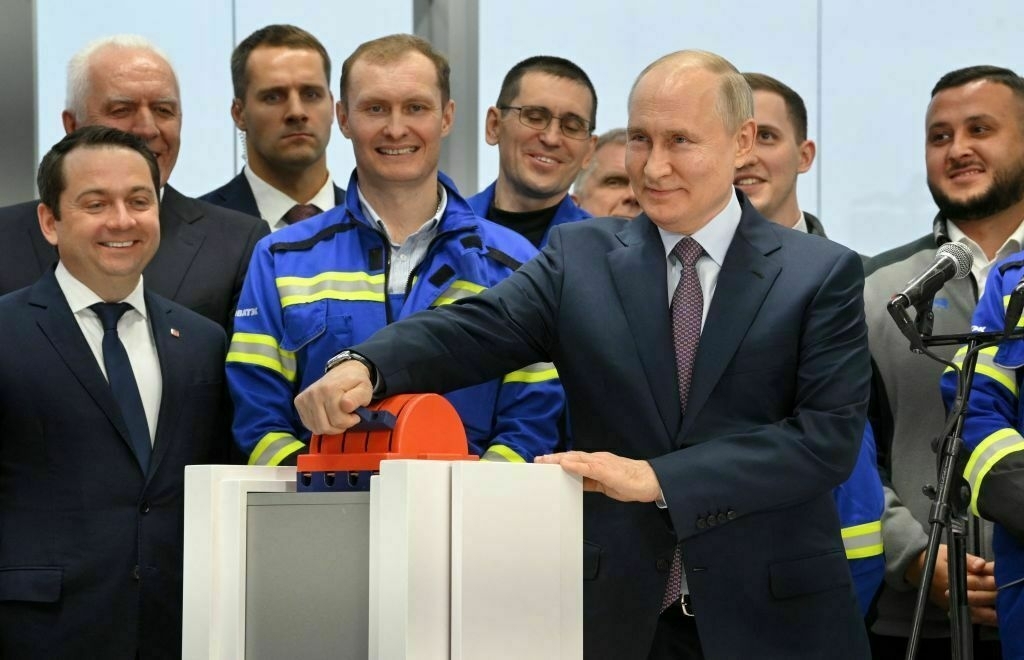
Russia is making another attempt to expand its exports of liquefied natural gas (LNG) after U.S. sanctions disrupted production at its flagship Arctic LNG 2 plant, Bloomberg reported on June 28.
Arctic LNG 2, owned by the Russian company Novatek, was envisaged as Russia’s largest LNG plant and aimed to produce almost 20 million metric tons of LNG per year. The U.S. State Department targeted the Arctic LNG 2 project with sanctions in 2024.
An LNG vessel has reportedly docked at the Arctic LNG 2 facility for the first time since October, according to ship-tracking data and satellite images analyzed by Bloomberg. Data suggests that at least 13 vessels of Russia’s “shadow fleet” have been assembled to potentially serve Arctic LNG 2.
These include four ice-class vessels, including the one currently docked at Arctic LNG 2. Three others are idling in the Barents Sea, along with three traditional LNG vessels. Two more vessels are being repaired in China and another two are idled in the Gulf of Finland. One ship is located near a floating storage facility in Russia’s Far East.
While pipeline shipments of Russian gas to Europe have declined sharply since the full-scale invasion of Ukraine, Russia’s shadow fleet — a group of aging oil tankers used to circumvent global sanctions — continues to grow.
Moscow now has more vessels at its disposal than it did last year, according to Malte Humpert, founder of the Arctic Institute think tank.
“If (Russia) can find buyers, this small fleet should be sufficient to lift cargoes,” Humpert told Bloomberg.
Finding buyers may present a difficulty, due to wariness about sanctions violations. Former U.S. President Joe Biden sanctioned ships and companies connected with exports from Arctic LNG 2 in 2024, thought it is not yet clear if U.S. President Donald Trump will enforce sanctions as strictly.
Representatives of Arctic LNG 2 have continued to search for buyers in China and India, but have not yet made any sales, traders familiar with the matter told Bloomberg.
Arctic LNG 2 cut production from its gas fields to almost zero in November 2024, after halting liquefaction the previous month due to Western sanctions. The U.S. sanctioned two vessels and two entities connected to Arctic LNG 2 in September 2024, after previously targeting the project in a sweeping round of sanctions late August.
The August sanctions likely forced Novatek to scale back its operations at the facility. Novatek itself was sanctioned after the outbreak of the full-scale war in 2022.
Despite escalating war plans, Putin claims Russia will cut military spending starting in 2026Russian President Vladimir Putin claimed on June 27 that Moscow plans to cut its military expenditure beginning next year, in a rebuke of NATO members’ plans to increase defense spending to 5% of GDP.The Kyiv IndependentDmytro Basmat
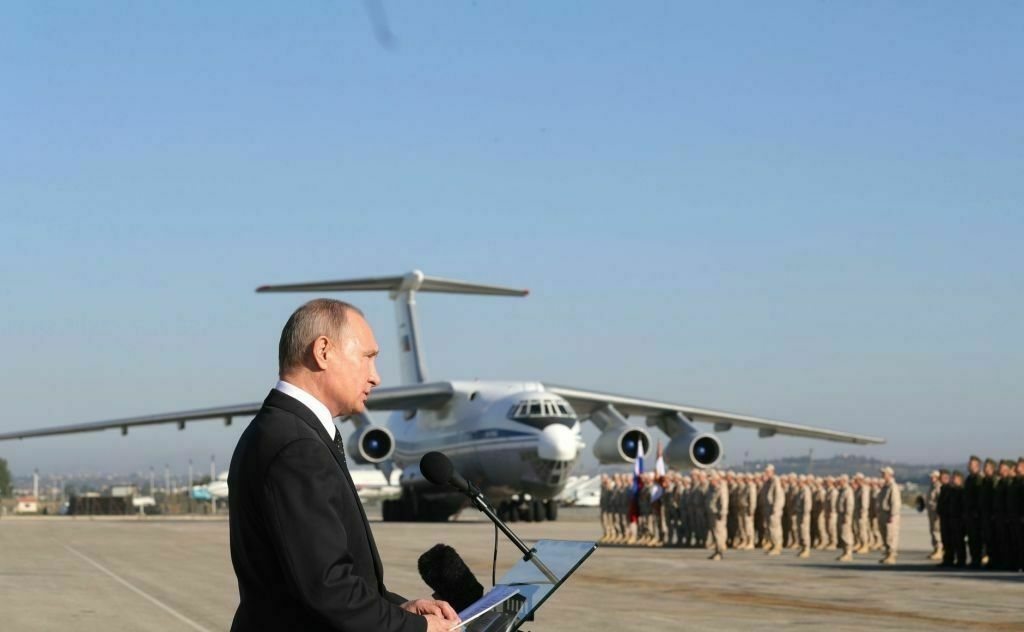
-
Russian mass missile attack targets Ukrainian regions far from front lines
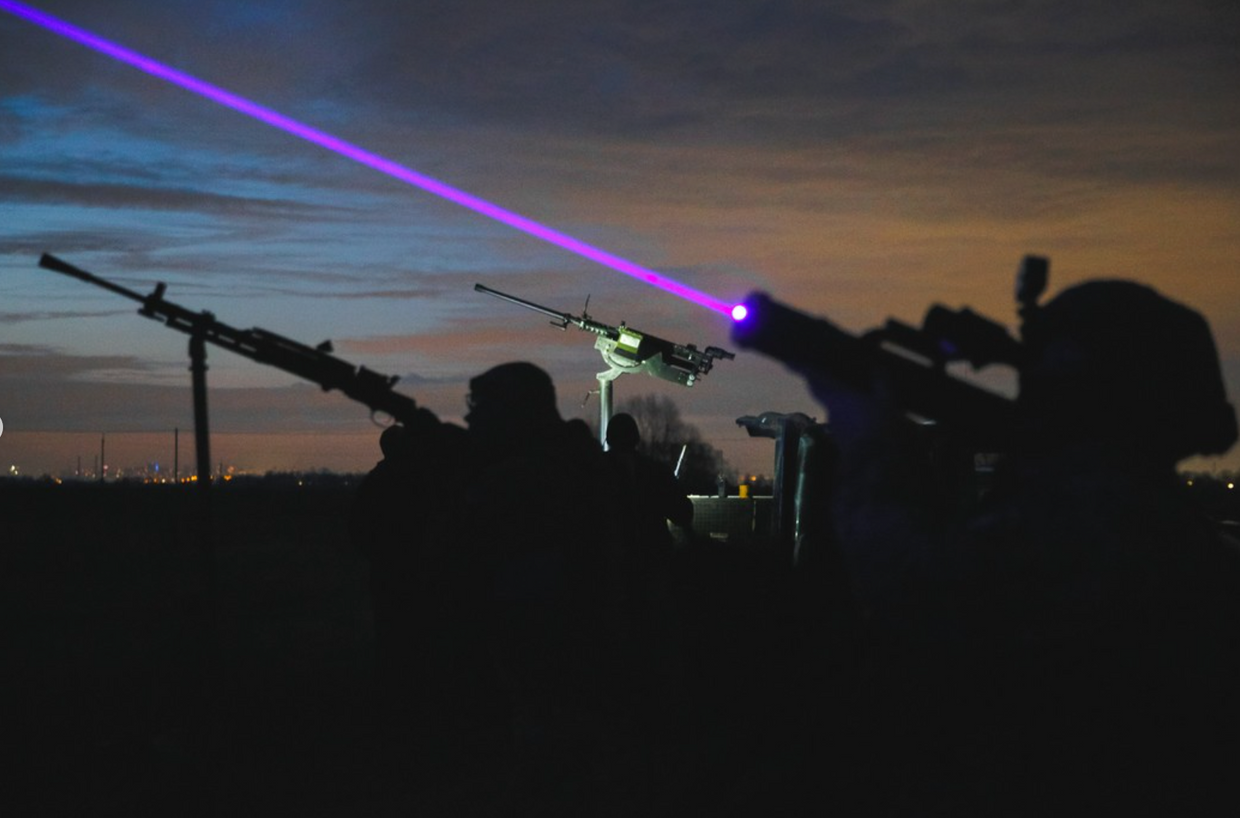
Editor’s Note: This is a developing story and is being updated.
A large-scale Russian missile and drone attack terrorized Ukraine overnight on June 29 as air raid alarms sounded across the country, including western regions far from the front lines.
Russia’s bombardments — a fact of life after three years of full-scale war — have intensified dramatically in May and June, with mass attacks becoming more frequent and more deadly.
Ukraine’s Air Force warned late in the evening on June 28 that Russia had launched three Tu-95 bombers from the Olenya military airfield in Murmansk Oblast. The Air Force also warned that multiple groups of Russian drones were heading towards various regions.
Several hours later, the Air Force reported that a Russian MiG-31K — a jet capable of carrying Kinzhal ballistic missiles — took off from Savasleyka airfield in Russia’s Nizhny Novgorod Oblast. The Air Force followed this up with warnings that cruise missiles were bound for several regions, including Ternopil, Lviv, and Ivano-Frankivsk oblasts in western Ukraine.
The Operational Command of the Polish Armed Forces said it scrambled fighter jets and activated ground-based air defense units in response to the Russian aerial attacks in western Ukraine.
Ukrainian drones strike missile, drone arsenal in Russia’s Bryansk OblastUkraine’s military intelligence (HUR) struck on June 28 the 1060th Material-Technical Support Center in the city of Bryansk, Ukraine’s General Staff said. The facilities store a Russian missile and drone arsenal, Ukrainska Pravda reported, citing a source in HUR.The Kyiv IndependentDmytro Basmat
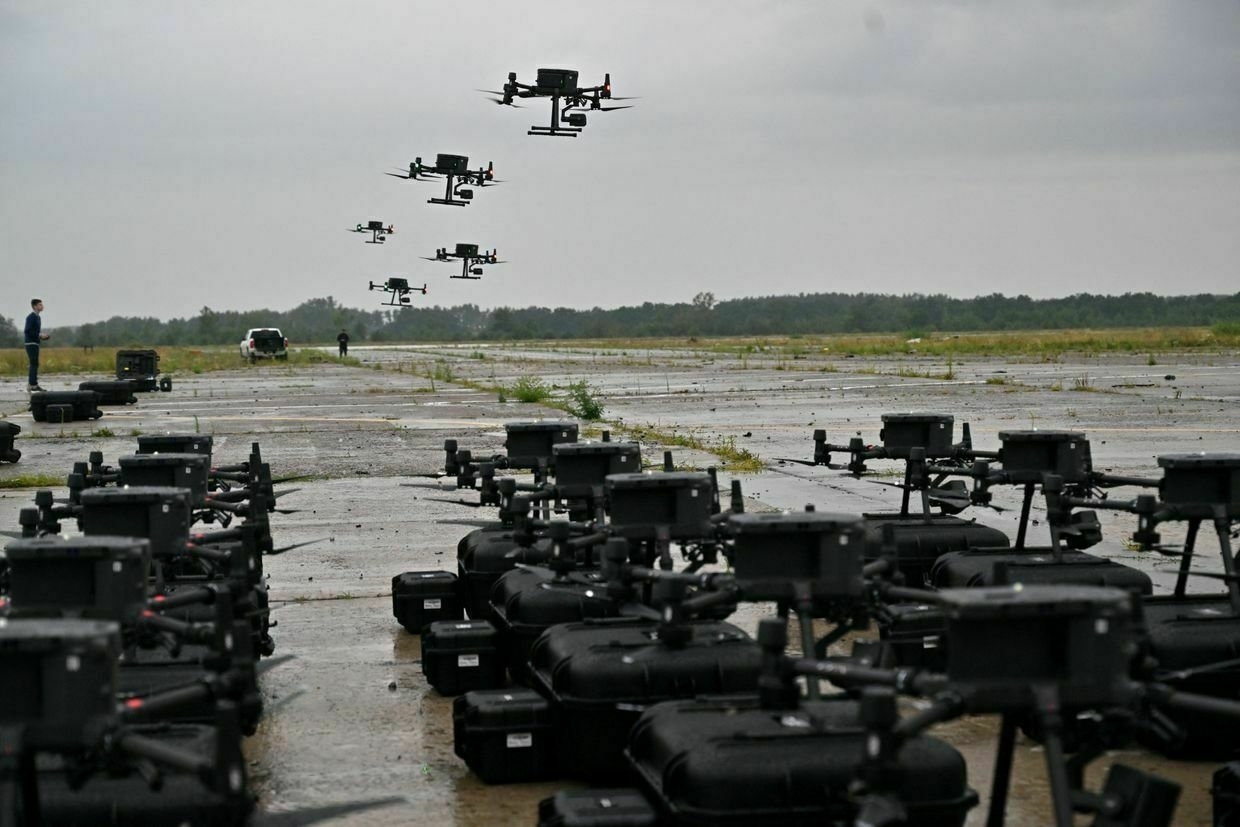
Explosions and strikes were reported in Mykolaiv, Kremenchuk, Zaporizhzhia, Cherkasy Oblast, Ivano-Frankivsk, and Lviv as waves of attacks came throughout the night. Some regional officials shared preliminary reports of damage and casualties even as air defense continued to operate in the area.
Civilian infrastructure was damaged and at least three people were injured in attacks on Cherkasy Oblast, Governor Ihor Taburets reported.
In Kremenchuk, Poltava Oblast, an undisclosed enterprise was hit, causing a fire, according to Governor Volodymyr Kohut.
A production facility at an unnamed enterprise in Zaporizhzhia was hit during an overnight missile attack, Governor Ivan Fedorov said. No casualties were reported.
After the alarms died down, officials in Lviv Oblast said that Russia attempted to strike critical infrastructure in the region. According to Lviv Mayor Andrii Sadovyi, these efforts were largely unsuccessful.
“Despite the complexity of this overnight combined attack, no one was injured and no civilian buildings were damaged in Lviv,” he wrote on Telegram.
Mykolaiv Oblast Governor Vitalii Kim reported that Russia targeted the city overnight with ballistic missiles and Shahed drones, hitting an infrastructure facility. The strike caused a fire but no casualties.
The mass missile and drone attack comes a day after Russian President Vladimir Putin told reporters that Moscow is ready to hold another round of peace talks.
Ukrainian and Russian delegations have now held two direct talks in Istanbul, but the discussions have yielded few results outside of coordinated prisoner swaps.
Moscow refuses to budge on its maximalist ambitions in Ukraine and is unwilling to enter a ceasefire unless Kyiv preemptively agrees to surrender all foreign military aid. Putin on June 20 declared that “all Ukraine is ours” in a bombastic speech at the St. Petersburg Economic Forum.
Russian ballistics and kamikaze drones have targeted Kyiv and other Ukrainian cities with renewed ferocity, killing dozens of civilians and injuring hundreds more. Just this week, a Russian missile struck a passenger train in Dnipro, leaving 21 dead and over 300 wounded.
Ukrainian drone strike on Crimea air base destroys 3 Russian helicopters, SBU claimsThe attack destroyed Mi-8, Mi-26 and Mi-28 attack helicopters, and a Pantsyr-S1 self-propelled anti-aircraft missile and gun system, the Security Service of Ukraine told the Kyiv Independent. The Kyiv IndependentKateryna Denisova
The Kyiv IndependentKateryna Denisova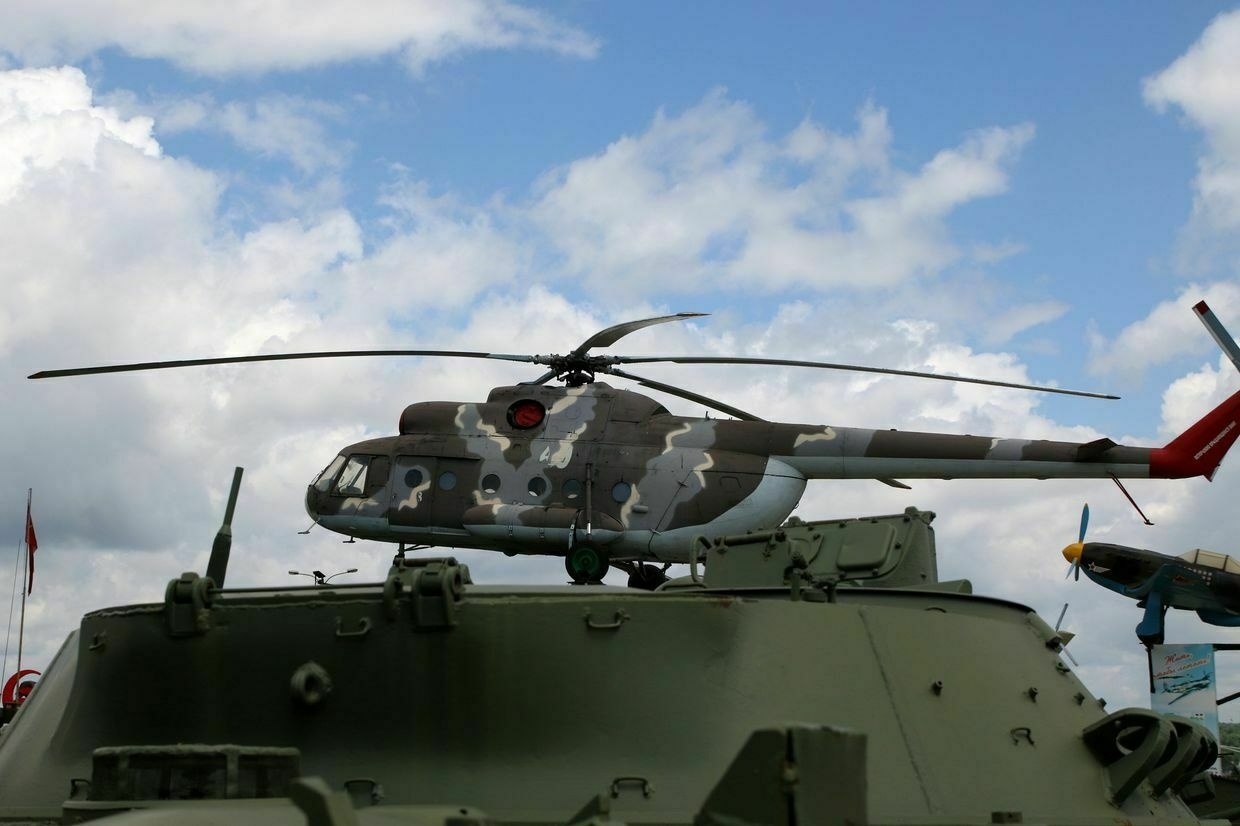
-
Serbian police crack down on protestors at mass anti-government rally in Belgrade
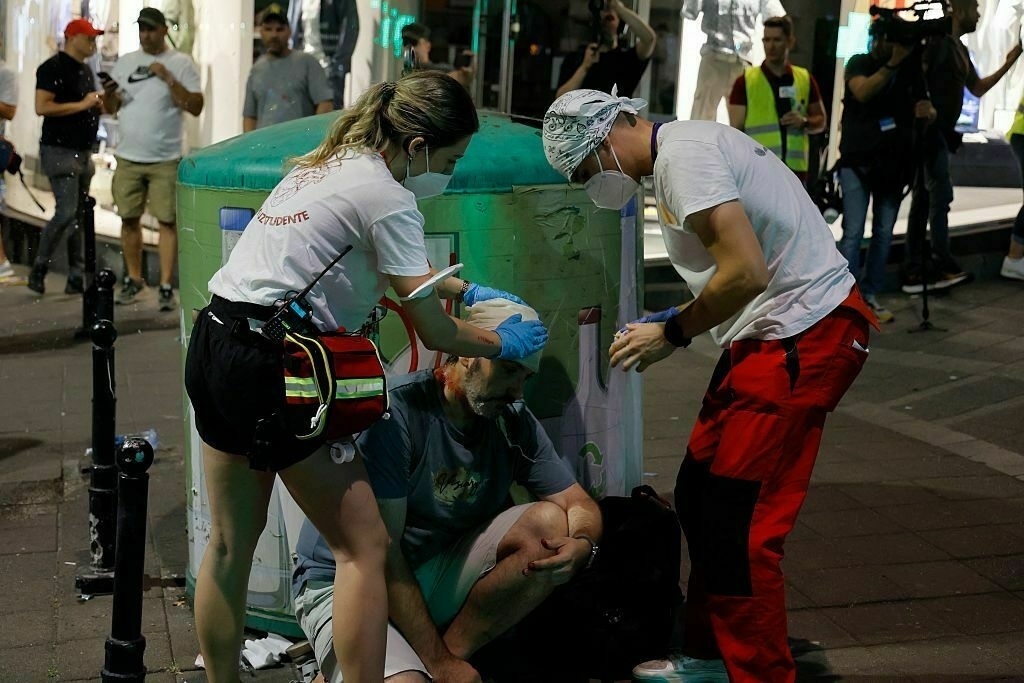
Police aggressively dispersed protestors at an anti-government rally in Belgrade, whereover 100,000 demonstrators gathered on June 28 to demand snap elections.
The rally marks the latest mass action in a protest movement that started last fall, with activists calling for an end to corruption and the 12-year rule of Serbian President Aleksandar Vucic.
Crowds in Belgrade on June 28 chanted “We want elections!” — a key demand of the movement that Vucic has consistently refused. His term ends in 2027, which is also the date of the next scheduled parliamentary elections.
Police officers in riot gear used tear gas, pepper spray, and stun grenades to forcibly dispersed crowds, according to multiple media outlets. Dozens of protestors were detained, though the police did not provide an exat number.
Serbian Interior Minister Ivica Dacic claimed that demonstrators attacked the police.
Protestors reportedly threw eggs, plastic bottles, and other objects at riot officers blocking the crowd from entering a city park where Vucic supporters were staging a counterprotest. Vucic reportedly bused in groups of his own supporters from around the country ahead of the rally.
As protests engulf Serbia, President Vucic looks for support East and WestEditor’s Note: Following a number of attacks against peaceful protestors in Serbia, the Kyiv Independent agreed to not publish the last names of people who gave comments for this story. BELGRADE, Serbia — Thousands of protestors walked 300 kilometers on March 1 from Belgrade to the southern city of Nis toThe Kyiv IndependentCamilla Bell-Davies
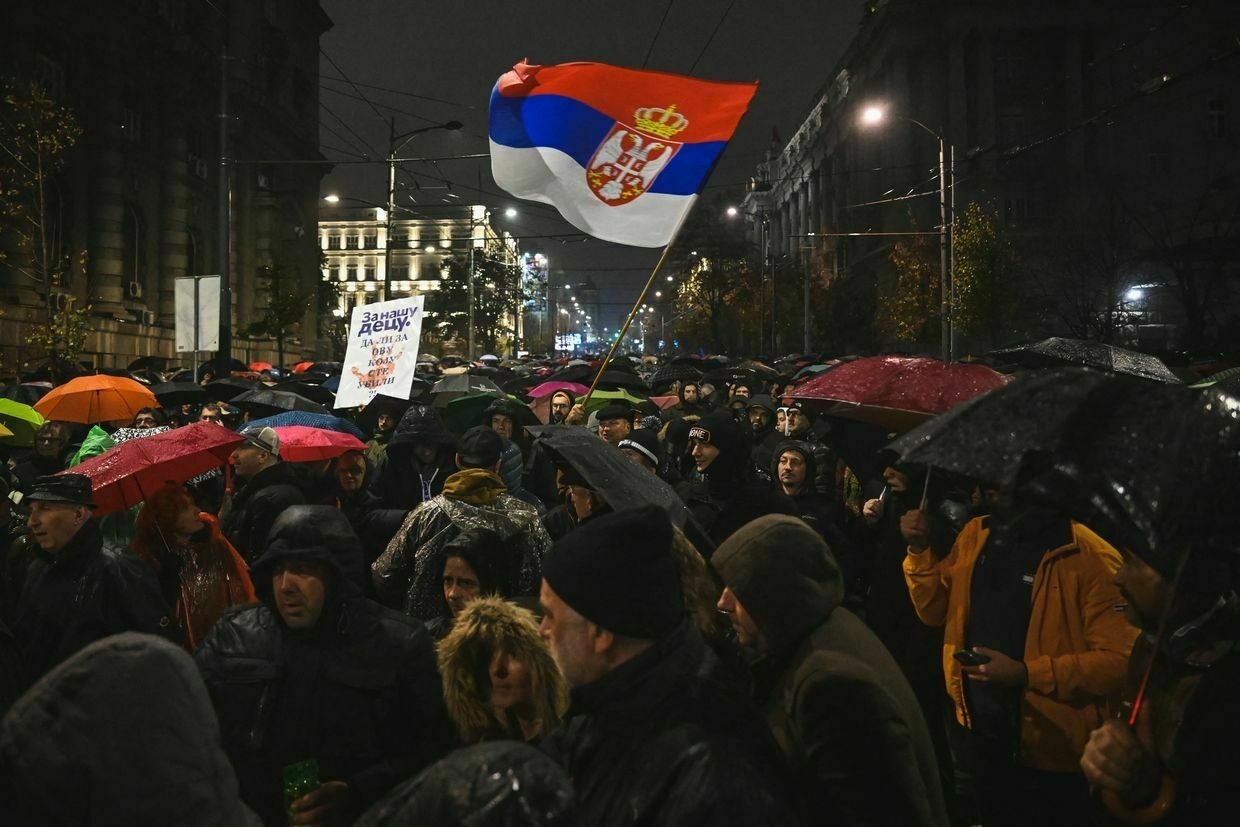
Vucic, a right-wing populist leader with authoritarian tendencies and warm ties with Russia, has repeatedly accused foreign states of inciting the protests in order to topple his government. He is provided no evidence to support these claims.
The current wave of protests in Serbia began in November, when a train station roof in the town of Novi Sad collapsed, killing 15. The disaster was blamed on government corruption.
While Vucic has alleged that Western powers are trying to trigger a “Ukrainian-style revolution in Serbia,” the Serbian protests are not markedly pro-Ukrainian or pro-Russian. Unlike mass demonstrations in Slovakia, where activists explicitly condemned the government’s Kremlin-friendly agenda, the Serbian movement is focused on Vucic’s corrupt leadership.
Since Russia’s full-scale invasion of Ukraine in 2022, Serbia has attempted to navigate a delicate diplomatic path between Moscow and the West. It has positioned itself as neutral in the Russia-Ukraine war and balanced its status as an EU candidate with its longstanding ties to Russia.
Vucic made his first official visit to Ukraine on June 11.
Ukraine’s new top prosecutor known for high-profile cases, seen as Zelensky loyalistLoyalty to the incumbent administration has been the key requirement for prosecutor generals in Ukraine. Ruslan Kravchenko, who was appointed as prosecutor general on June 21, appears to be no exception. Previously he had been appointed as a military governor by President Volodymyr Zelensky and is seen as a presidential loyalist. Kravchenko became Ukraine’s top prosecutor after a lengthy hiatus during which the position of prosecutor general remained vacant. His predecessor, Andriy Kostin, r The Kyiv IndependentOleg Sukhov
The Kyiv IndependentOleg Sukhov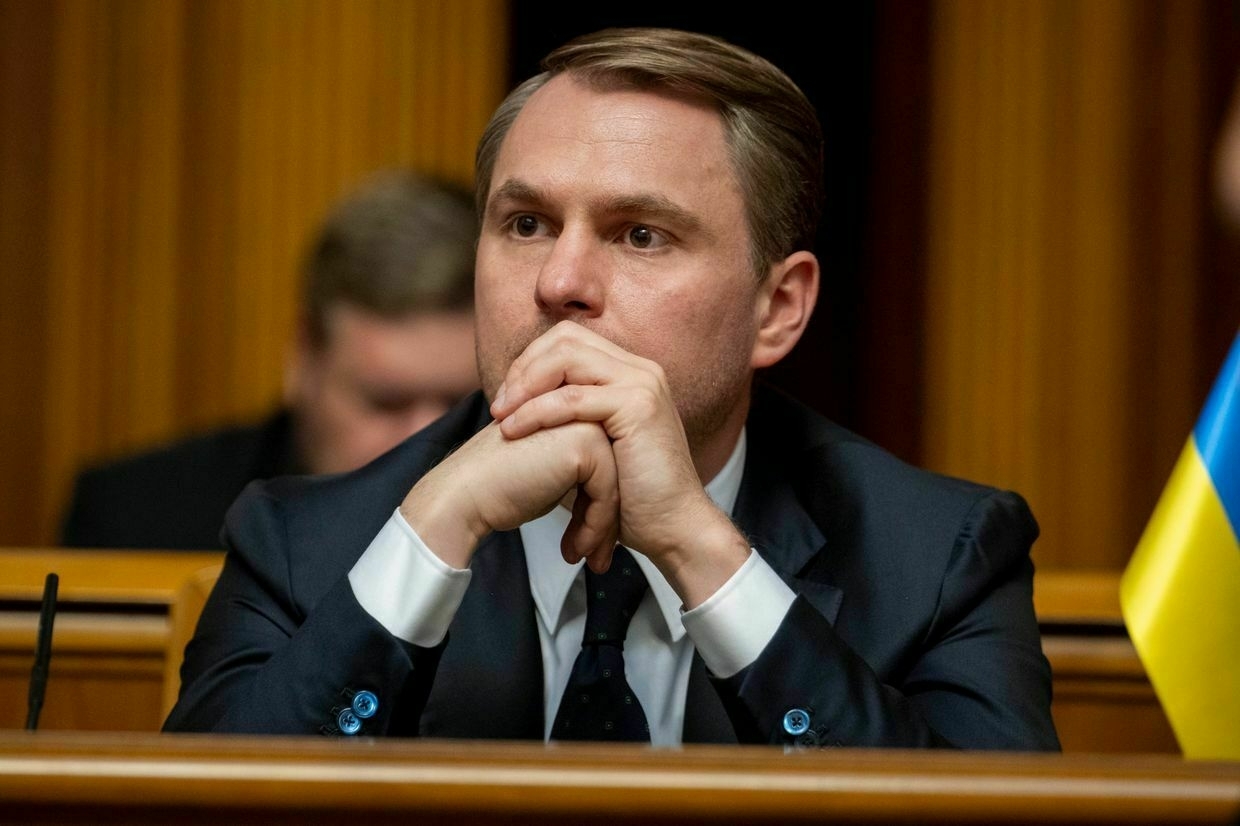
-
McDonald's to open 10 new restaurants in Ukraine this year, NYT reports
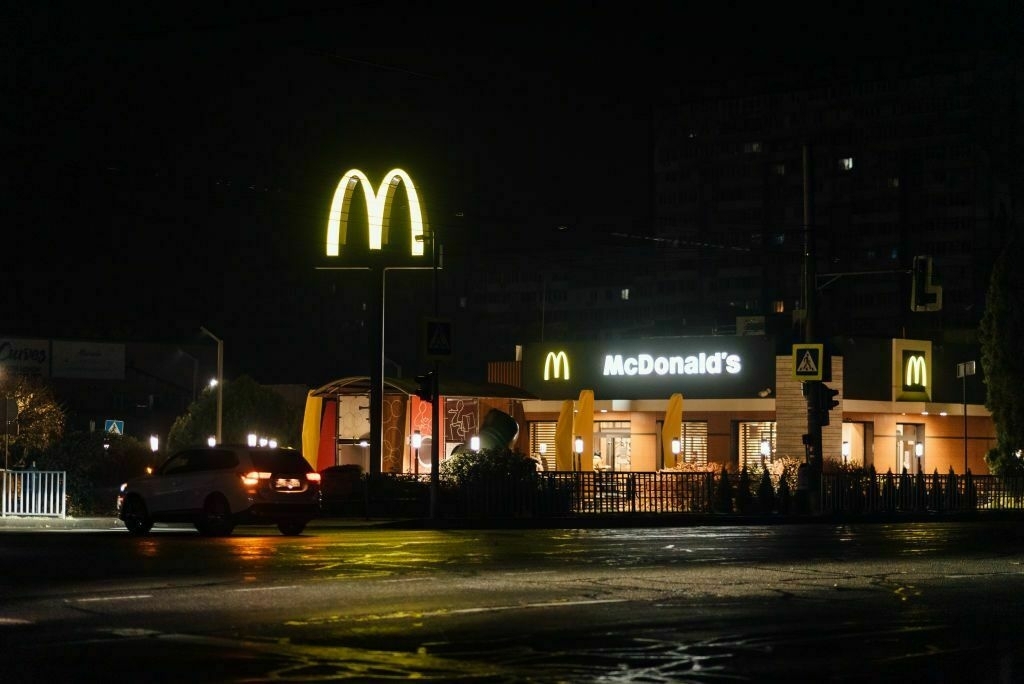
The U.S. fast-food giant McDonald’s plans to open 10 new restaurants in Ukraine this year, signaling faith in Ukraine’s struggling but growing wartime economy, the New York Times (NYT) reported on June 28.
McDonald’s closed all its locations in Ukraine after Russia launched the full-scale invasion in February 2022, but began reopening later that year. The 10 new restaurants will bring the total number close to 120 — more operating McDonald’s locations than before the war.
“Overall, this indicates that despite the military actions, Ukraine’s economy is showing positive dynamics,” Viktor Mykyta, a top economic adviser to President Volodymyr Zelensky, told the NYT.
“If a business like McDonald’s can operate here, it shows any investors that they, too, can confidently work here."
Mykyta served as Governor of Ukraine’s far-western Zakarpattia Oblast until last fall. The region was the only one in Ukraine without a McDonald’s outpost — until this spring, when two McDonald’s restaurants opened in Zakarpattia’s cities of Uzhhorod and Mukachevo.
The expansion of McDonald’s offers job opportunities and lucrative tax revenues. In 2024, McDonald’s paid over $60 million in taxes in Ukraine, making it the country’s largest taxpayer in the industry.
Ukraine’s economy is projected to grow by 3.3% this year, according to the European Bank for Development and Reconstruction (EBRD). Earlier projections showed over 4% growth, but rising inflation and an economic slowdown exacerbated by Russian attacks on energy infrastructure and nationwide labor shortages brought the forecast down.
Still, Ukraine has been able to welcome back Western businesses that suspended operations at the start of the war, including Ikea, H&M, and Zara.
Russia’s war has presented challenges to McDonald’s operations. In January 2025, a Russian missile strike on Kyiv damaged Ukraine’s oldest McDonald’s. Many restaurants also do not offer breakfast due to frequent air raids. In March, the company relaunched its breakfast menu at six McDonald’s locations.
McDonald’s closed its restaurants in Russia and left the Russian market entirely in 2022.
Russia revives obsolete T-62 tanks amid equipment shortages, Ukraine’s intel claims“The key factors limiting the ability to produce modern armored vehicles in Russia are a lack of industrial capacity and a shortage of imported high-tech components,” Ukraine’s military intelligence said. The Kyiv IndependentKateryna Denisova
The Kyiv IndependentKateryna Denisova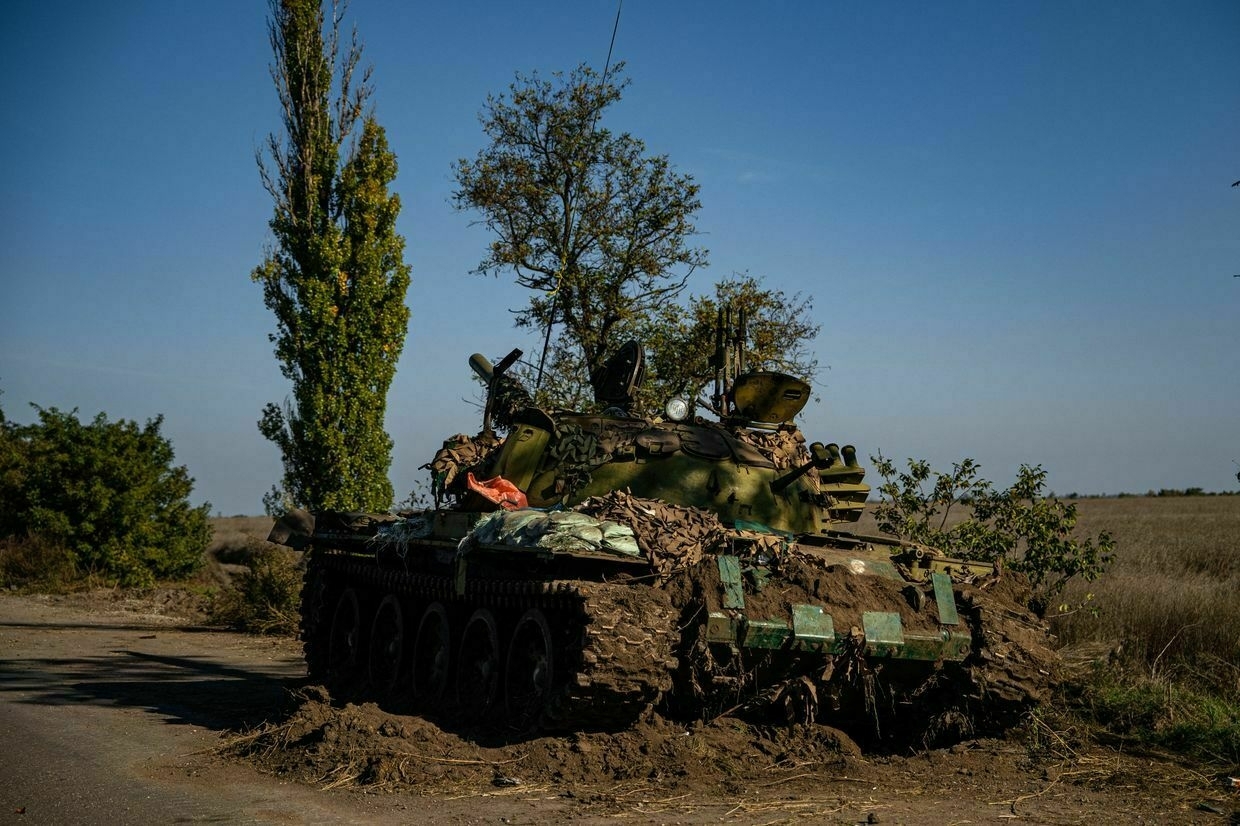
-
🔥 15 vehicles destroyed: Ukrainian Forces repel assault near Toretsk – FSB sent to fight
-
Pope Leo says Ukraine 'martyred' in Russia's 'senseless war'
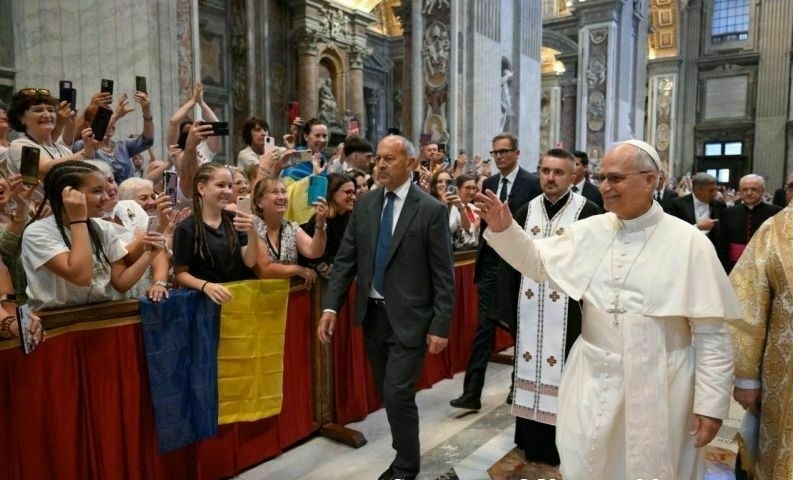
Pope Leo XIV welcomed Ukrainian Greek Catholic pilgrims to the Vatican on June 28, saying their country has been “martyred” by Russia’s “senseless war.”
Greek Catholicism is Ukraine’s second-largest Christian denomination, with adherents making up around one-tenth of the country’s population. Prevalent mainly in western Ukraine, it has retained many rituals and practices of the Orthodox Church while under the pope’s jurisdiction.
“I wish to express my closeness to the martyred Ukraine — to the children, the youth, the elderly, and especially to the families who mourn their loved ones,” Pope Leo said in an address to Greek Catholic pilgrims at St. Peter’s Basilica.
“I share in your sorrow for the prisoners and for the victims of this senseless war."
Sviatoslav Shevchuk, Head of the Greek Catholic Church in Ukraine, was among the pilgrims greeted at the Vatican, along with other bishops, priests, and lay believers. The pilgrimage was made in honor of the Jubilee, a Catholic holy year last observed in 2015-2016. The theme of the 2025 Jubilee is “Pilgrims of Hope.”
In his address, Pope Leo said that the faith of Ukrainians is being “sorely tested” by Russia’s full-scale invasion.
“Many of you, since the war began, have surely asked: Lord, why all this? Where are you? What must we do to save our families, our homes and our homeland?"
The pope also offered a special blessing to mothers of soldiers killed on the front lines in Ukraine.
After Pope Leo’s remarks at St. Peter’s, President Volodymyr Zelensky thanked the pontiff for his support.
Thank you, Your Holiness, for your continued prayers and compassion for Ukraine and our people,” Zelensky wrote on X.
“Together we must stop this wanton Russian aggression and protect innocent lives. A just peace is needed. And we would also deeply appreciate your kind help in bringing back all our people — adults and children — held in Russian captivity against their will."
Pope Leo XIV, formerly Cardinal Robert Prevost, was elected head of the Catholic Church in the conclave on May 8 after the death of his predecessor, Pope Francis. Zelensky met with Pope Leo at his inauguration mass on May 18 and described him as “a symbol of hope for peace.” The two discussed the return of children forcibly deported by Russia and other humanitarian issues.
Pope Leo has called for “a just and lasting peace” in Ukraine and has offered to host peace talks between Kyiv and Moscow at the Vatican — an offer Zelensky has welcomed and Kremlin officials have dismissed.
Early in June, Pope Leo spoke on the phone with Russian President Vladimir Putin, urging Russia to make “a gesture that would favor peace."
The pope’s support for Ukraine has been viewed as a departure from his predecessor Pope Francis, whose legacy among Ukrainians was marred by his at times controversial comments about Russia. In 2024, Pope Francis called on Ukraine to have the “courage” to “raise the white flag” and negotiate with Moscow.
‘Putin cannot stop’ – Estonian foreign minister says war in Ukraine existential for Russian presidentAs Russia continues to intensify its onslaught on Ukraine more than three years into the full-scale invasion, Kyiv faces a new challenge – keeping its Western allies, namely the new U.S. administration, engaged in the struggle. This became clear during the NATO summit in The Hague on June 24-25, whereThe Kyiv IndependentMartin Fornusek
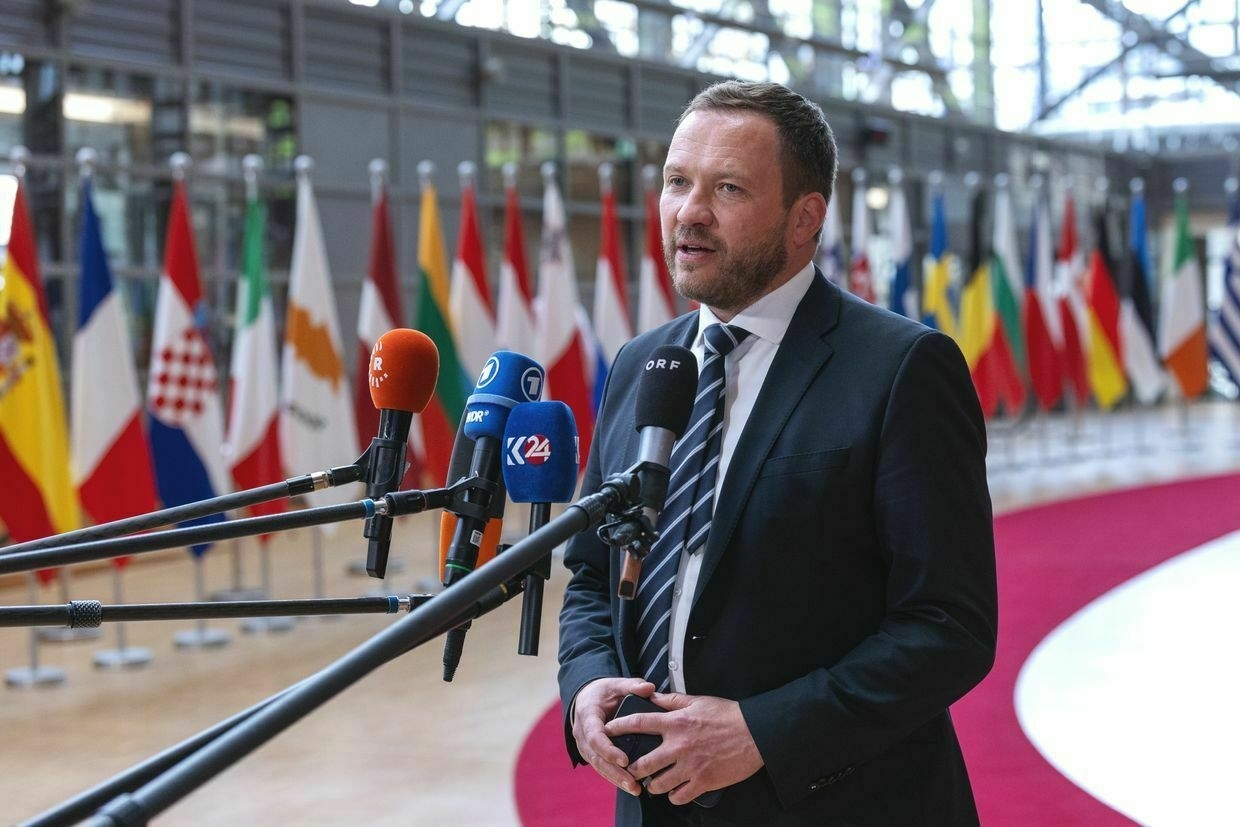
-
Former Kharkiv deputy mayor charged with embezzling funds allocated for defense fortifications
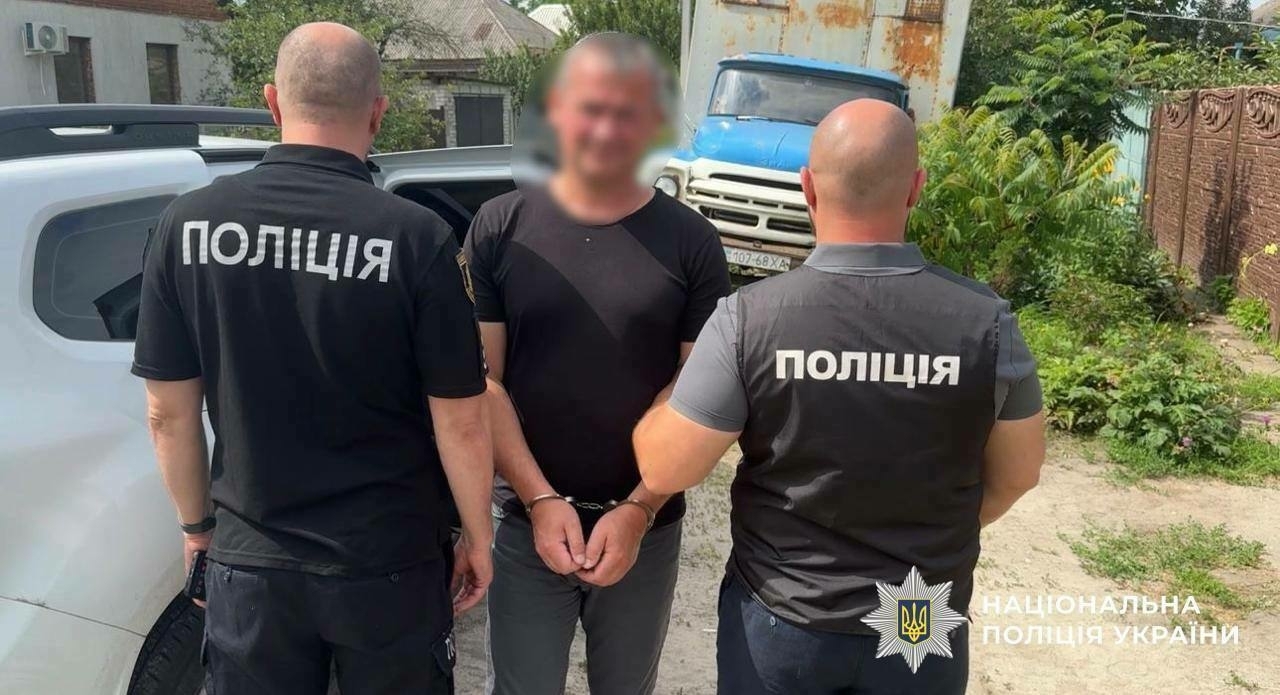
A former deputy mayor for Kharkiv is facing multiple charges related to creating and leading a scheme that allegedly embezzled 5.4 million hryvnias ($130,000) of budget funds allocated for fortifications, law enforcement agencies announced on June 28.
Ukraine’s military as well as public officials has seen several corruption scandals since the start of Russia’s full-scale war, related to illicit enrichment, money laundering, bribery, and misconduct of the command.
A total of four people, including two company heads and two entrepreneurs, were arrested alongside the former official, the National Police said.
The scheme allegedly involved a shell company procuring purchased materials for fortifications at prices over 30% above market value.
While authorities did not name the former official, Ukrainska Pravda reported, citing law enforcement sources, that the suspect in question is Andrii Rudenko, Kharkiv’s Deputy Mayor for Housing and Communal Services between 2015 and 2024.
Authorities did not publicly release the identities of the remaining suspects.
The five suspects are currently facing charges under 17 articles of Ukraine’s Criminal Code, with motions filed to impose pre-trial detention without bail.
It was not immediately clear as to the maximum sentence the suspects may receive if found guilty, however, Ukraine’s Prosecutor General Ruslan Kravchenko said that he will seek for “stolen budget funds must be fully returned to the state."
Law enforcement agents have previously arrested Kharkiv officials with corruption related charges.
In April, authorities charged a total of eight individuals, including local officials and entrepreneurs, accused of colluding with contractors to supply firewood to the military at prices significantly above market value. Several officials and entrepreneurs of housing and utilities departments in several regions, including Kharkiv, were allegedly implicated.
Ukrainian drone strike on Crimea air base destroys 3 Russian helicopters, SBU claimsThe attack destroyed Mi-8, Mi-26 and Mi-28 attack helicopters, and a Pantsyr-S1 self-propelled anti-aircraft missile and gun system, the Security Service of Ukraine told the Kyiv Independent. The Kyiv IndependentKateryna Denisova
The Kyiv IndependentKateryna Denisova